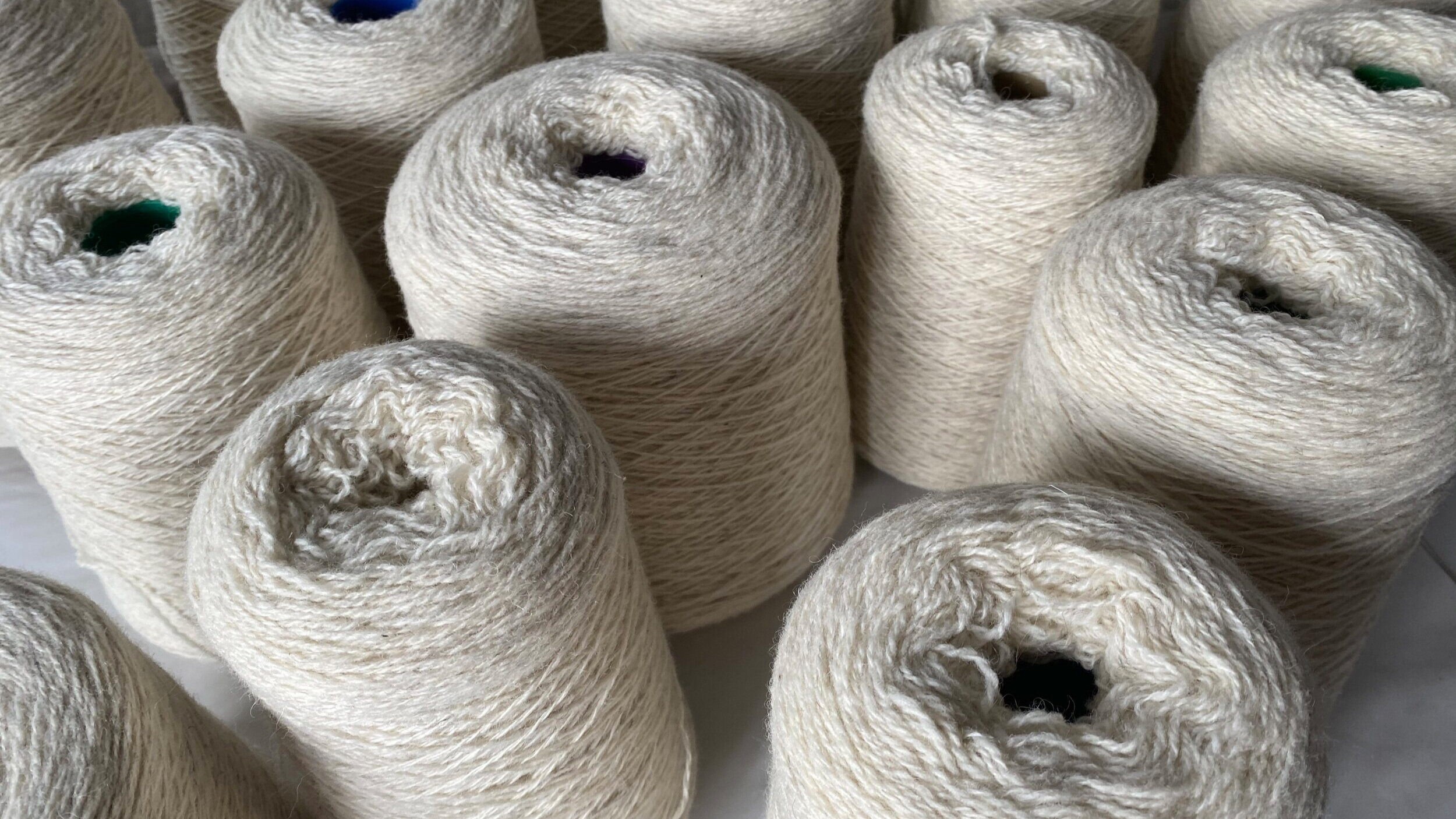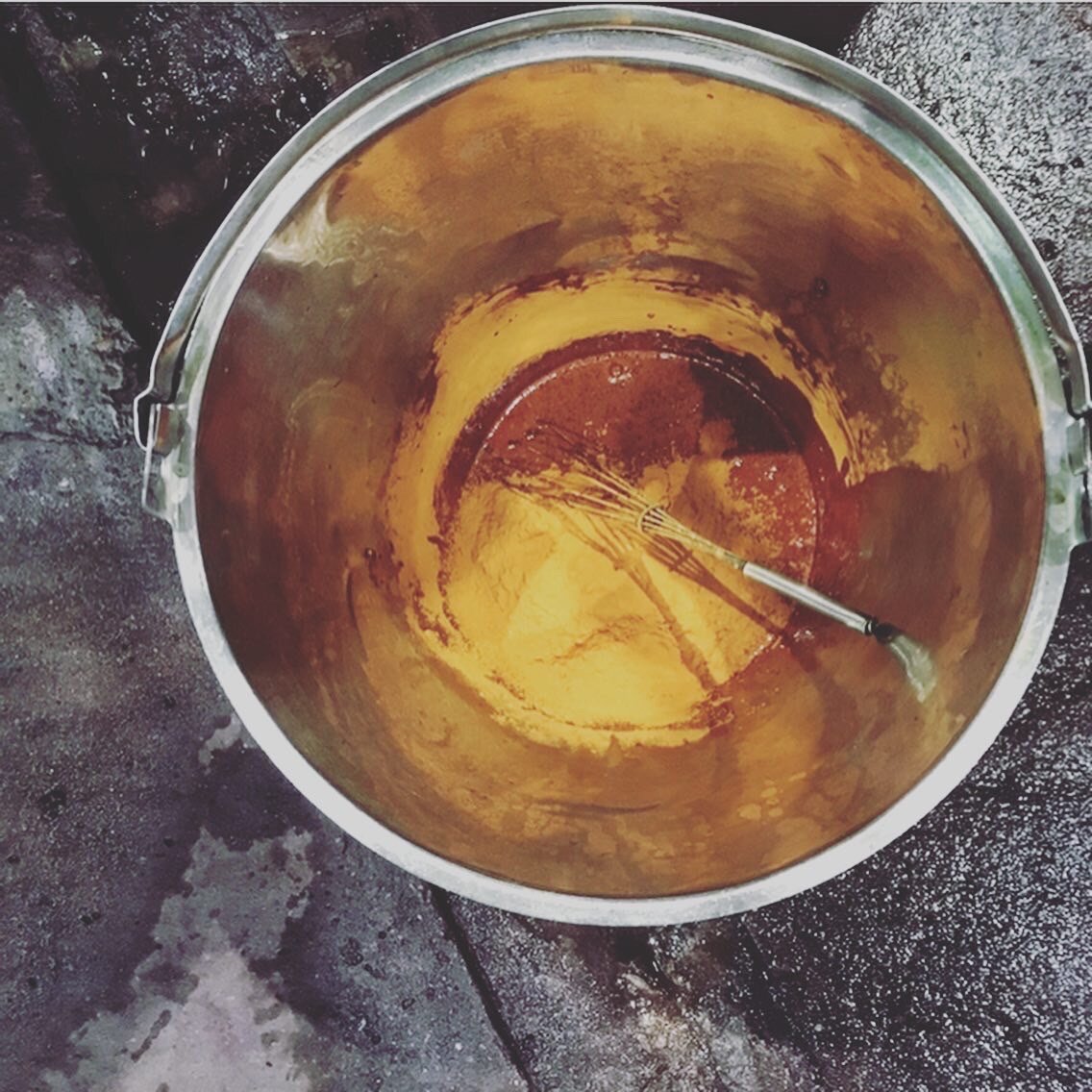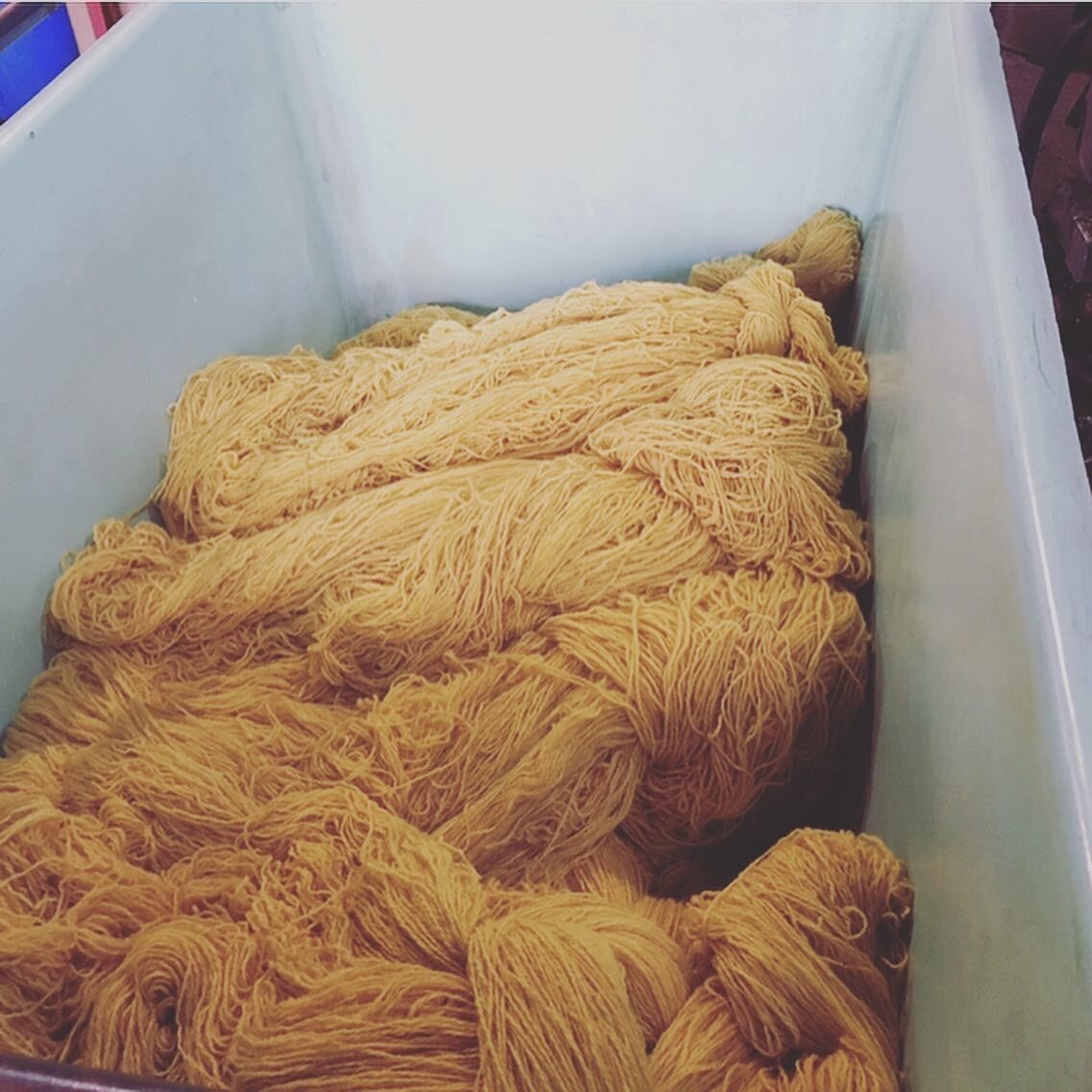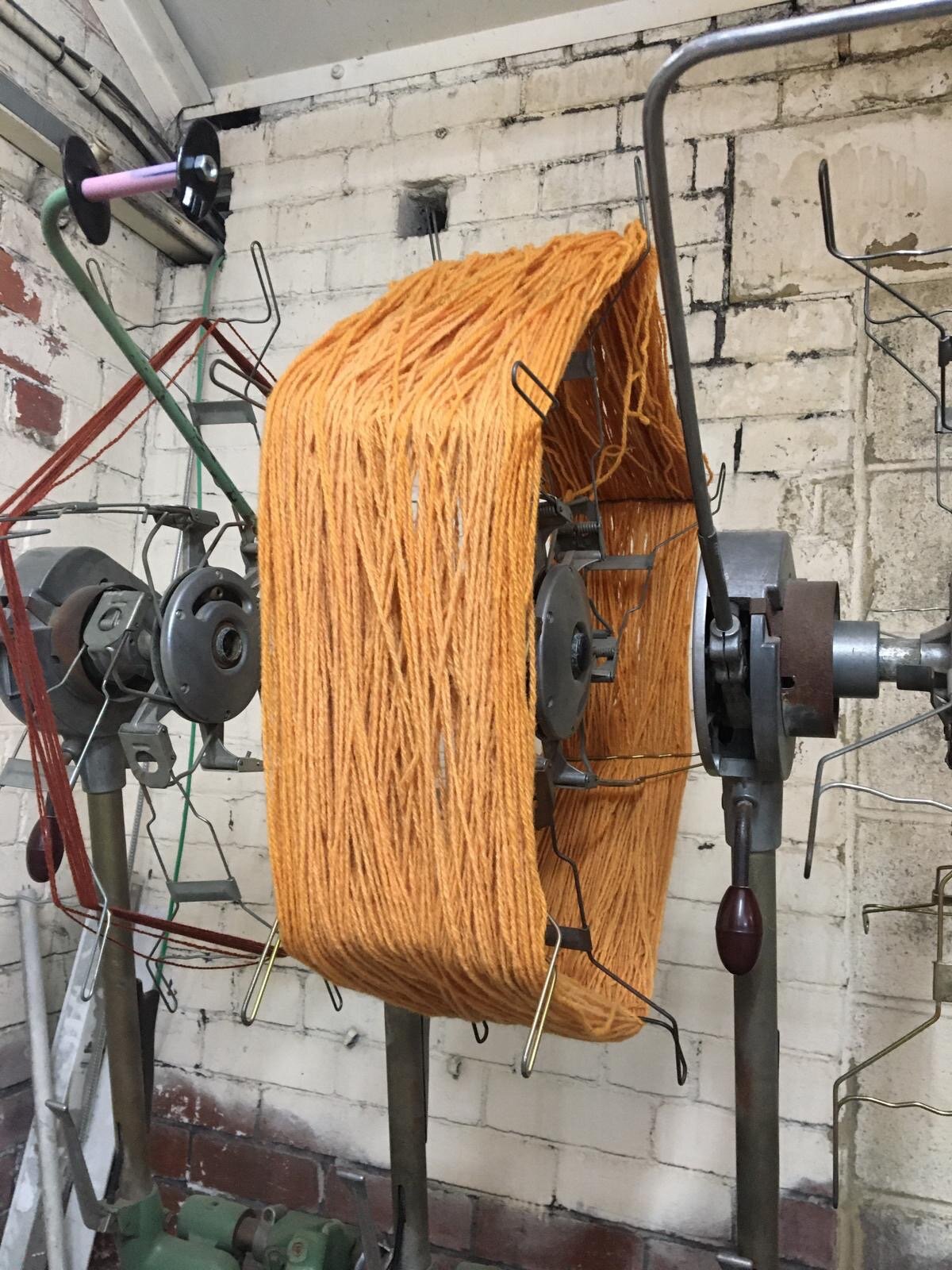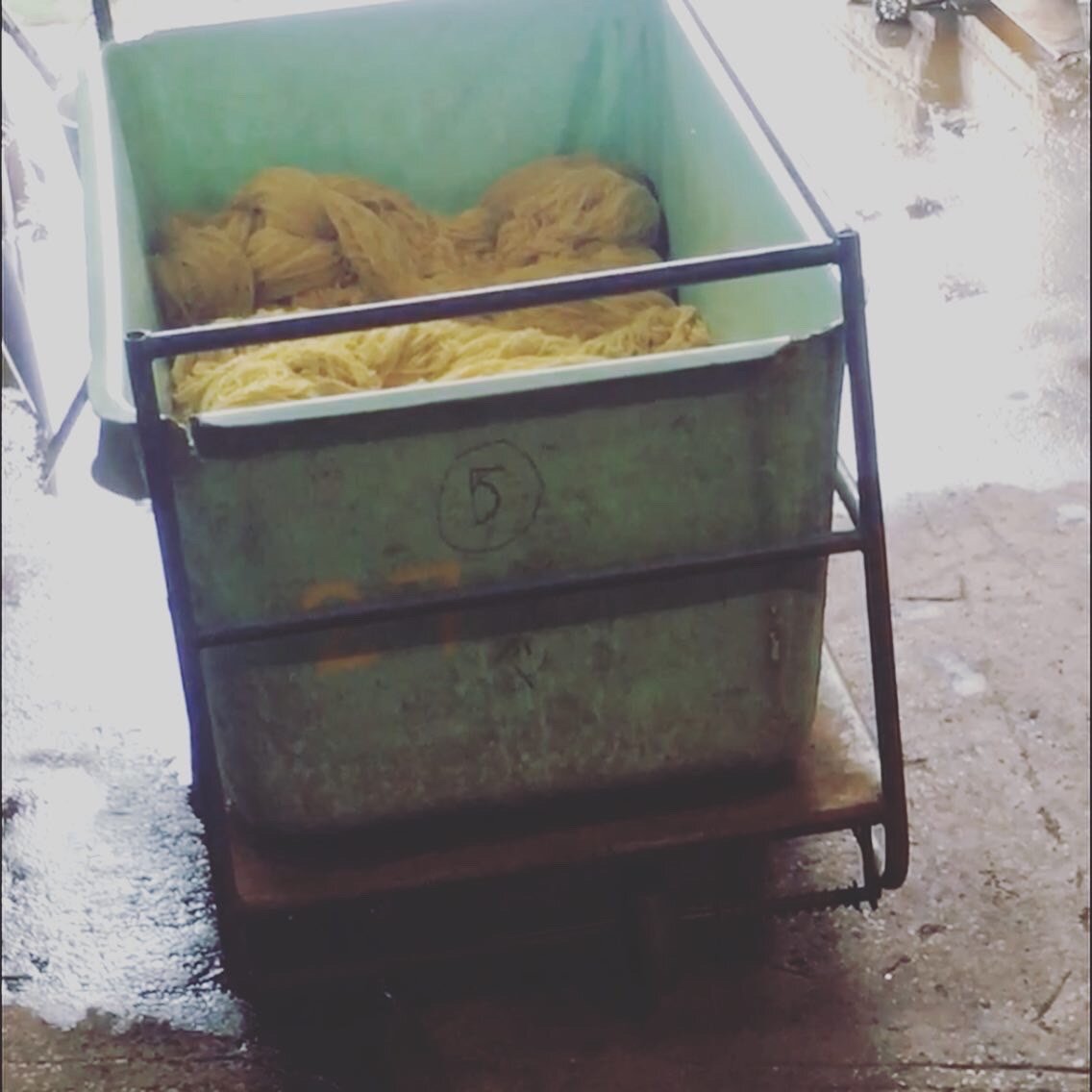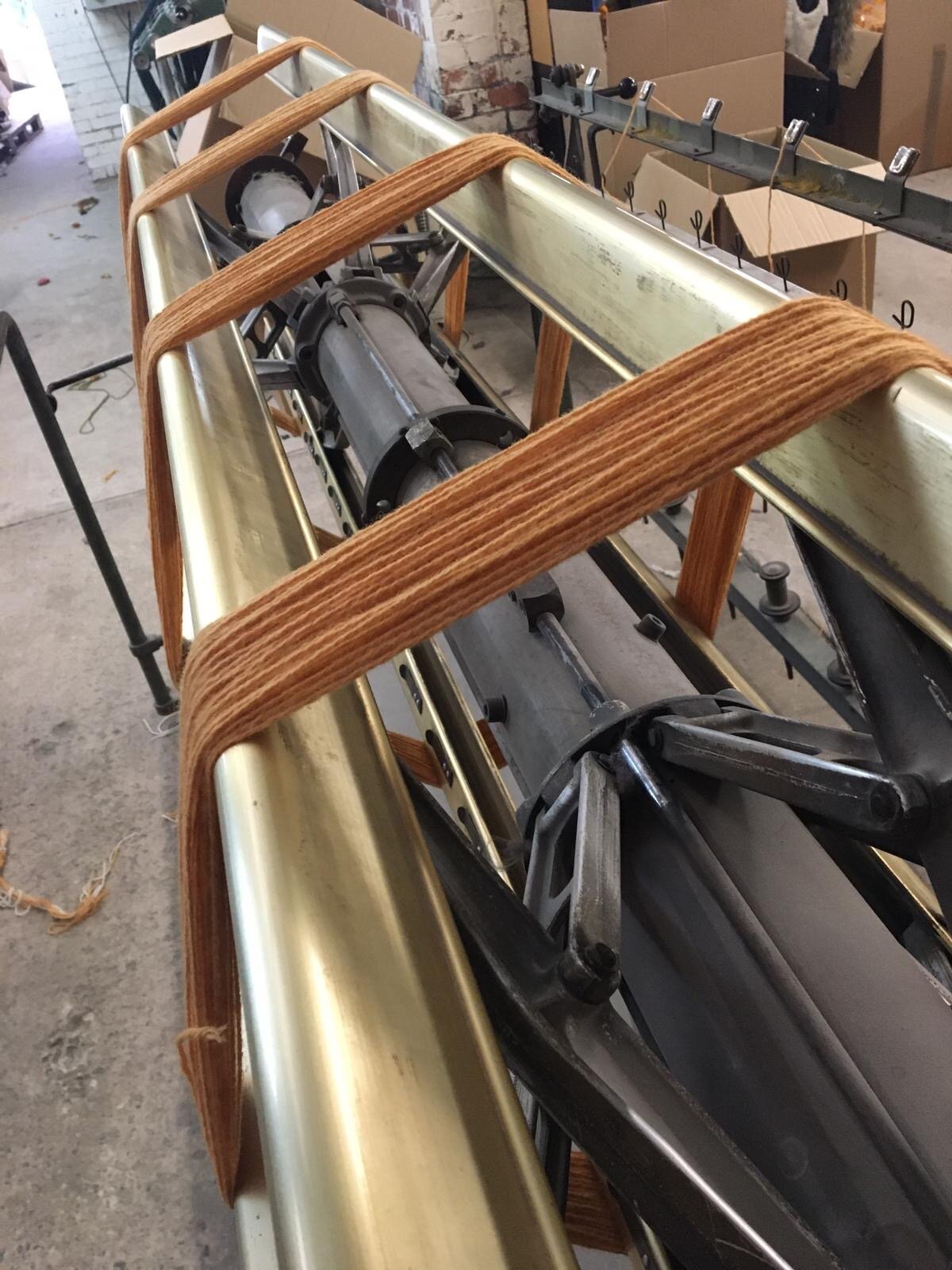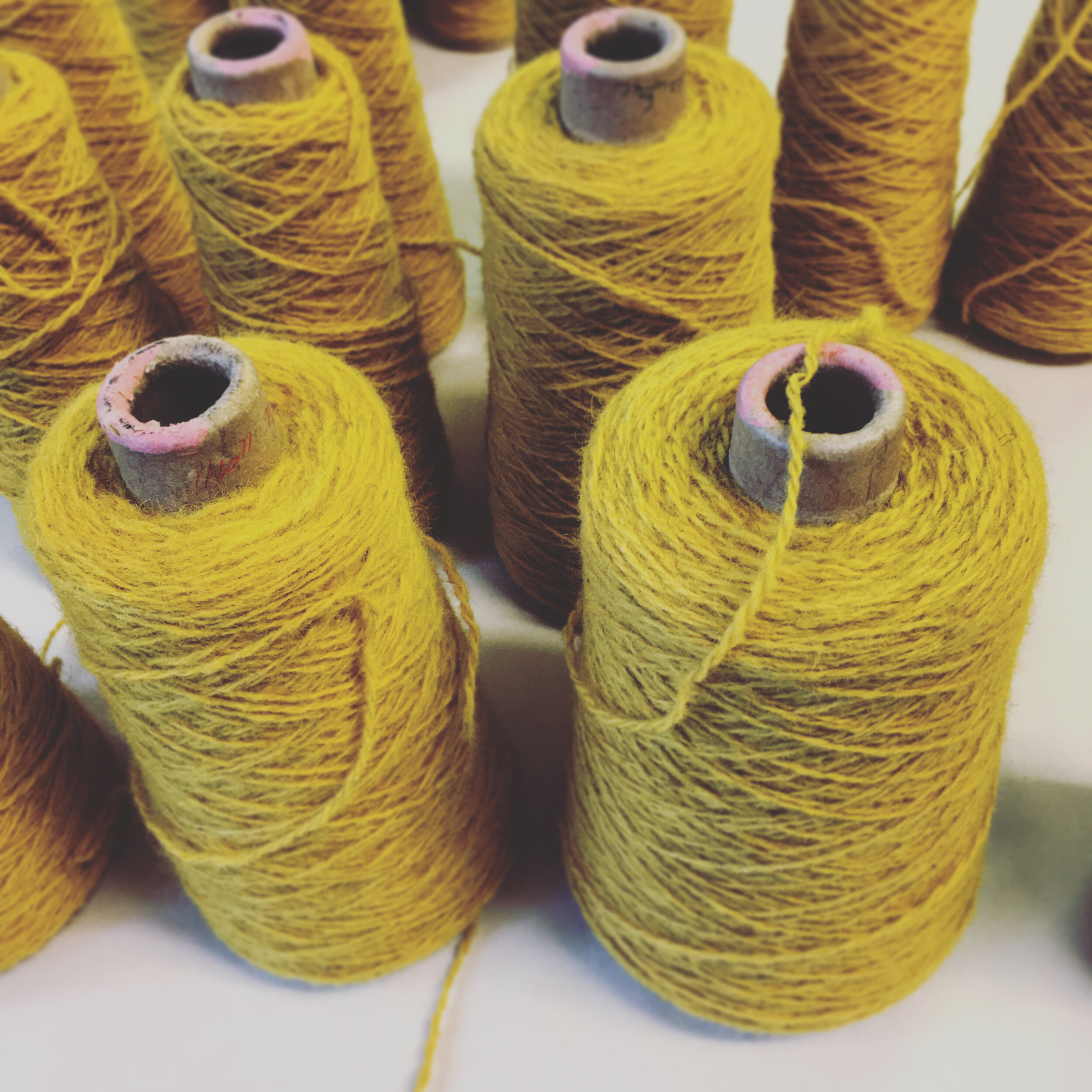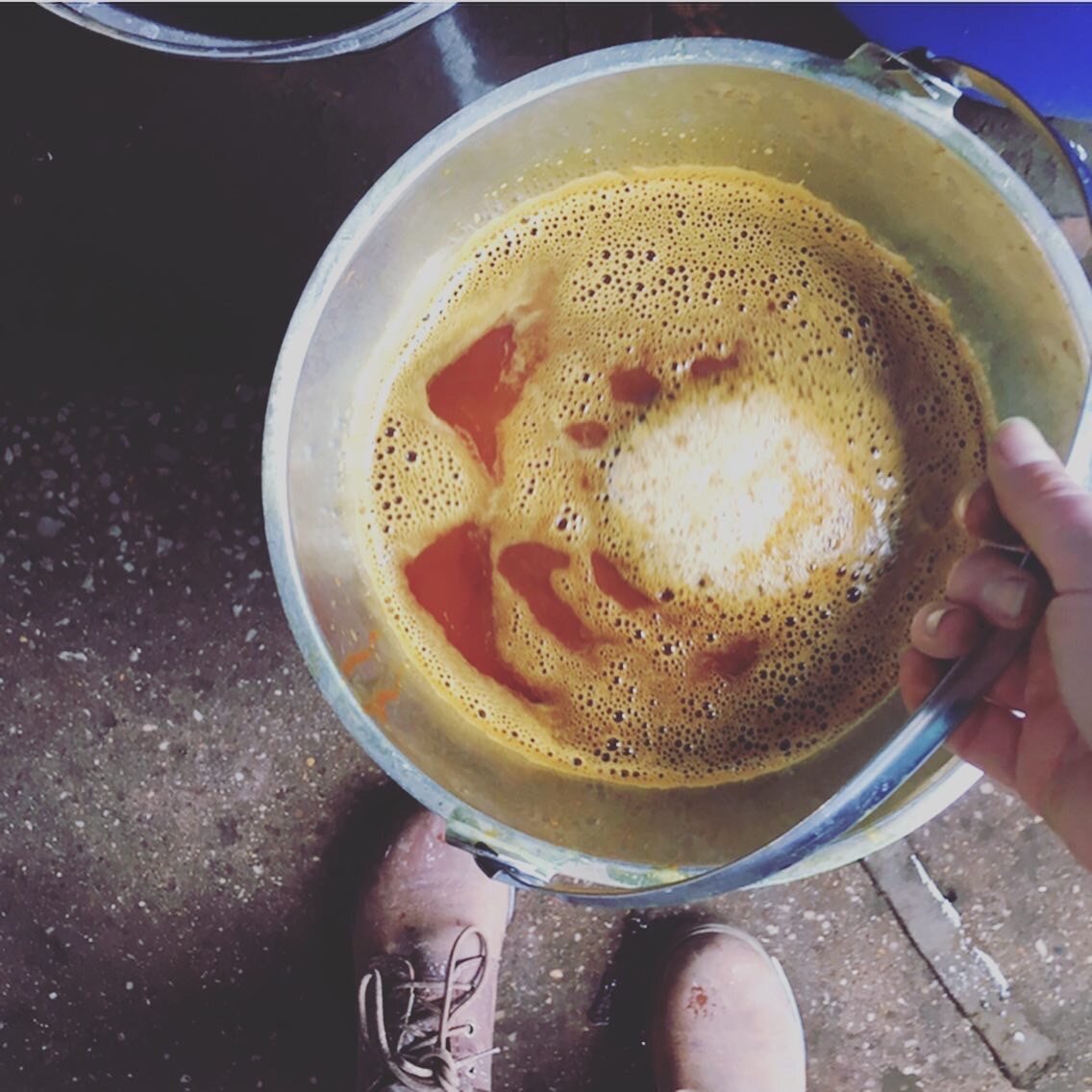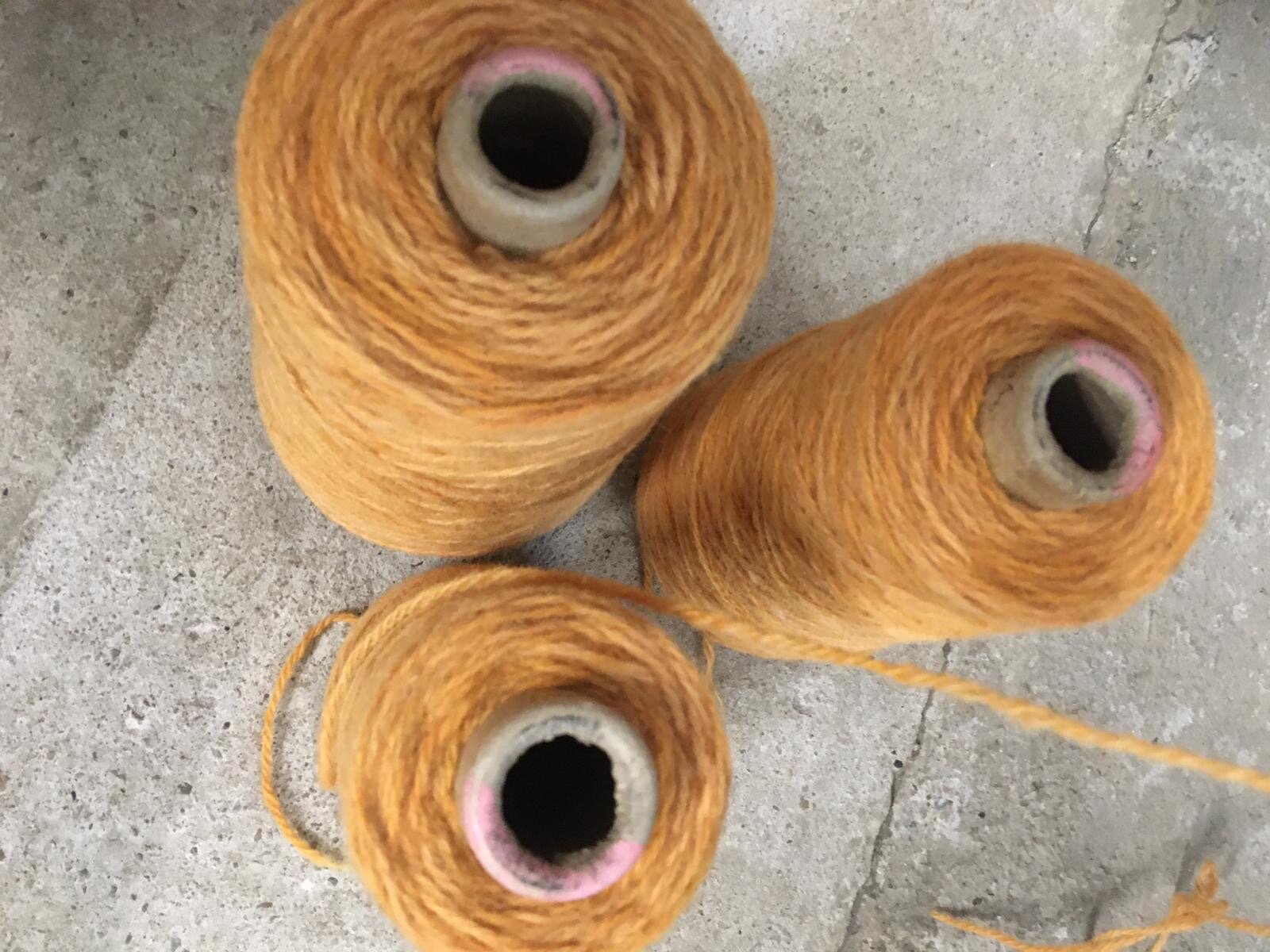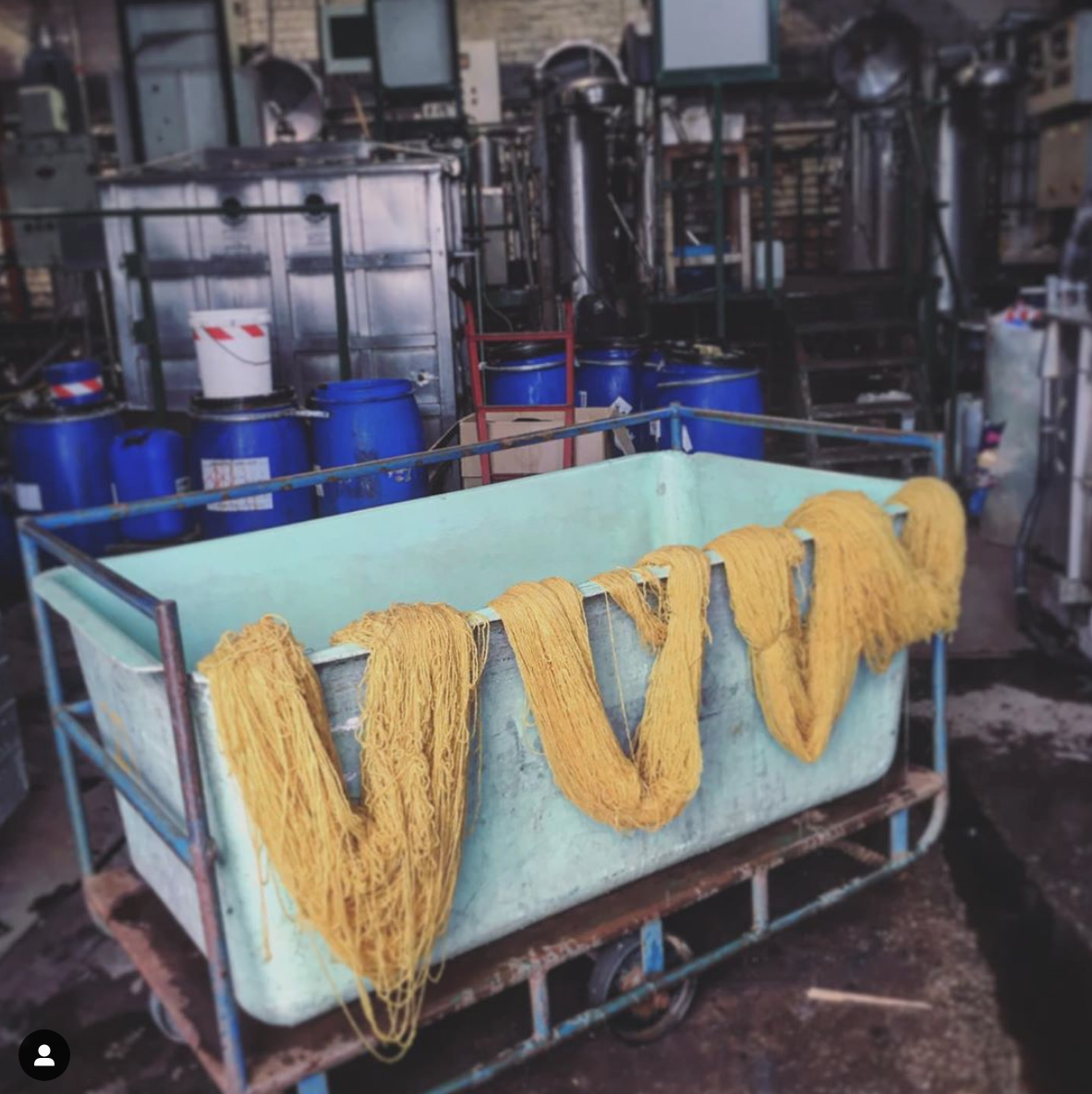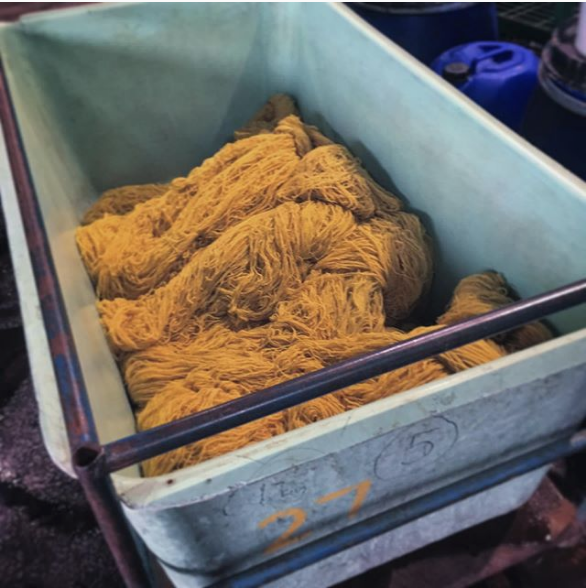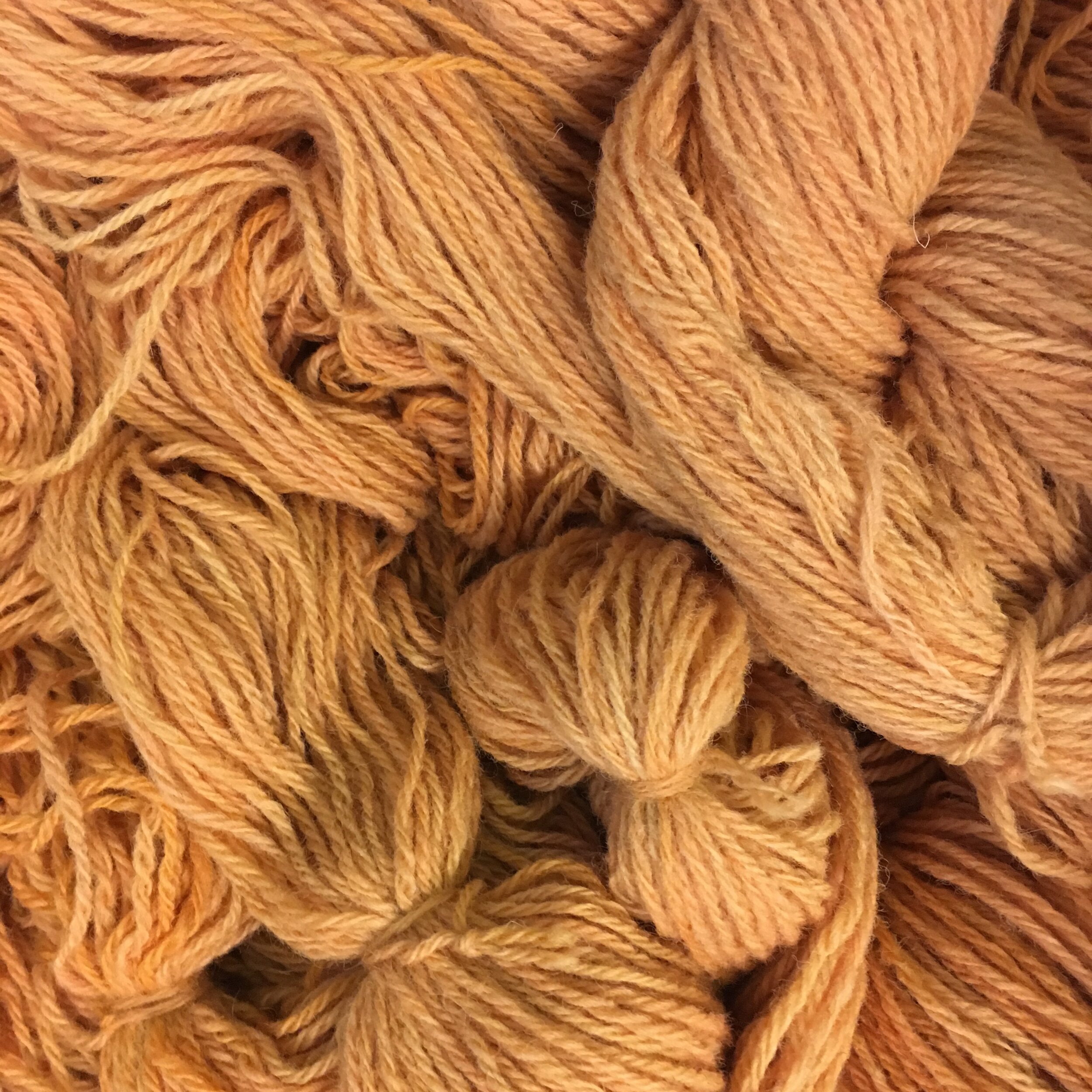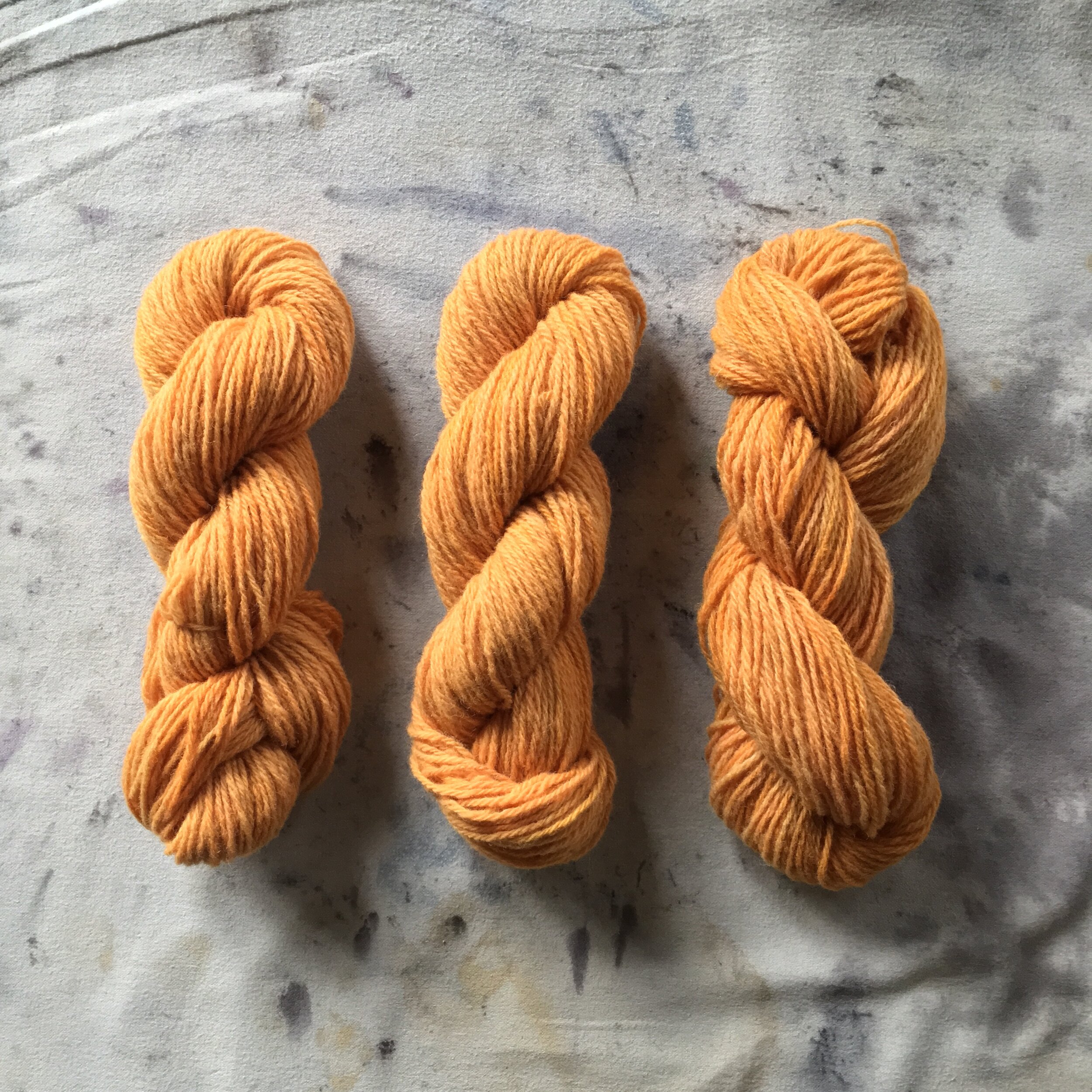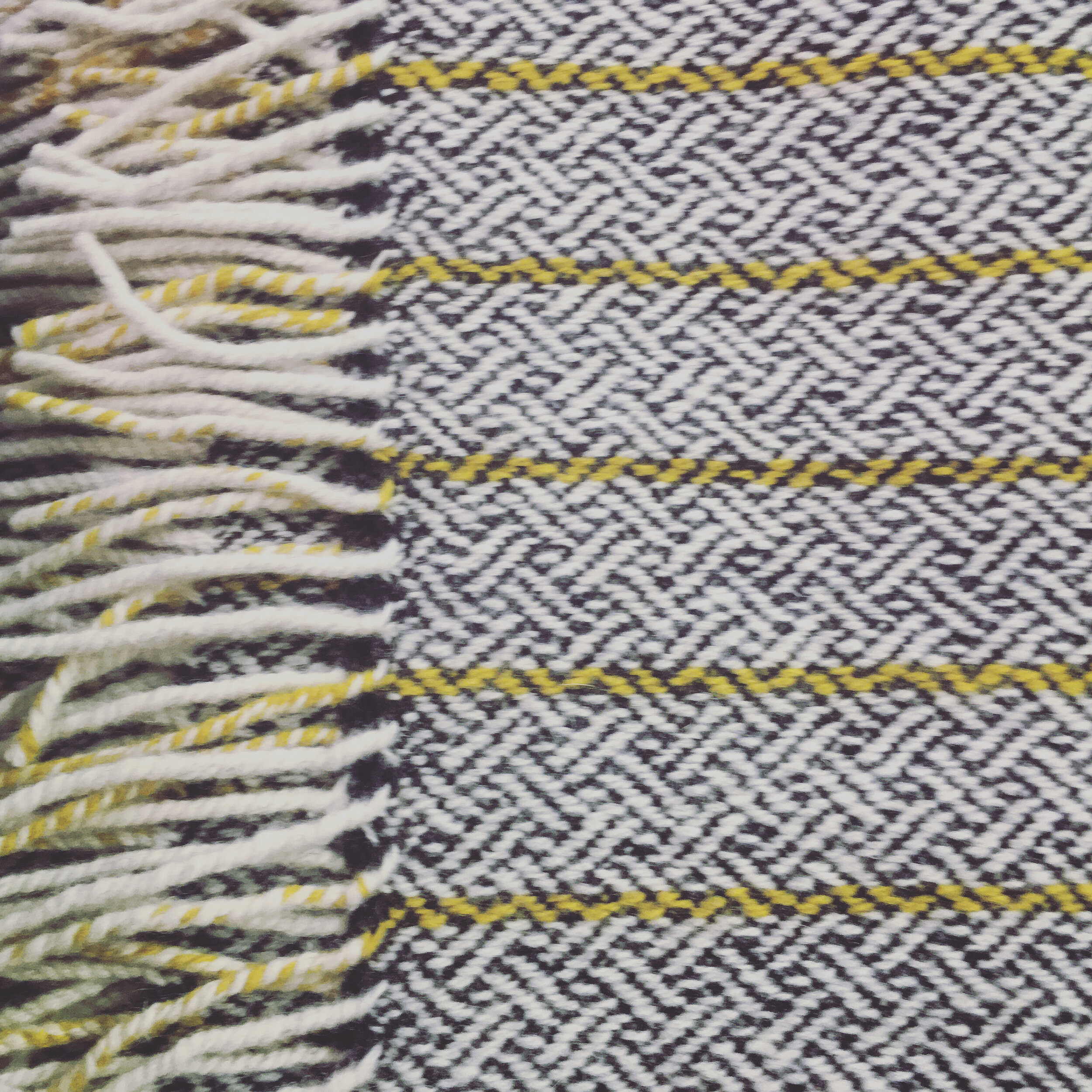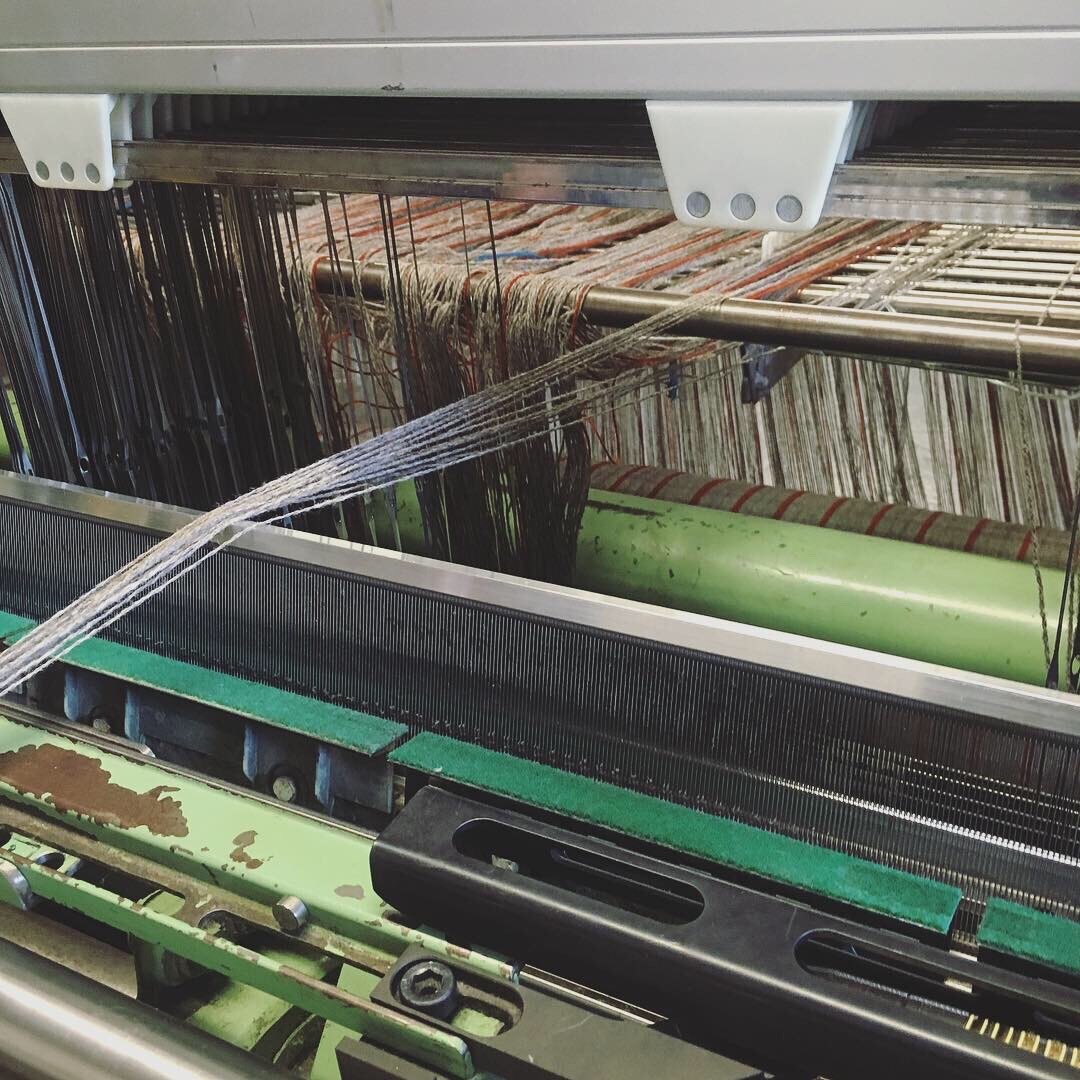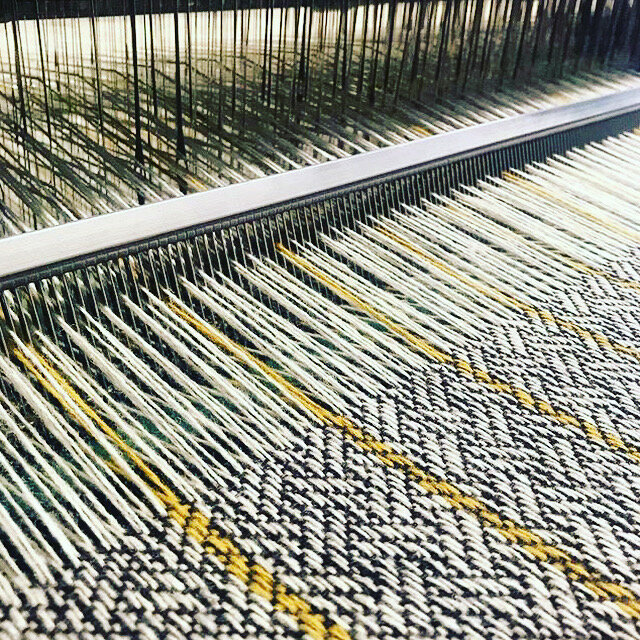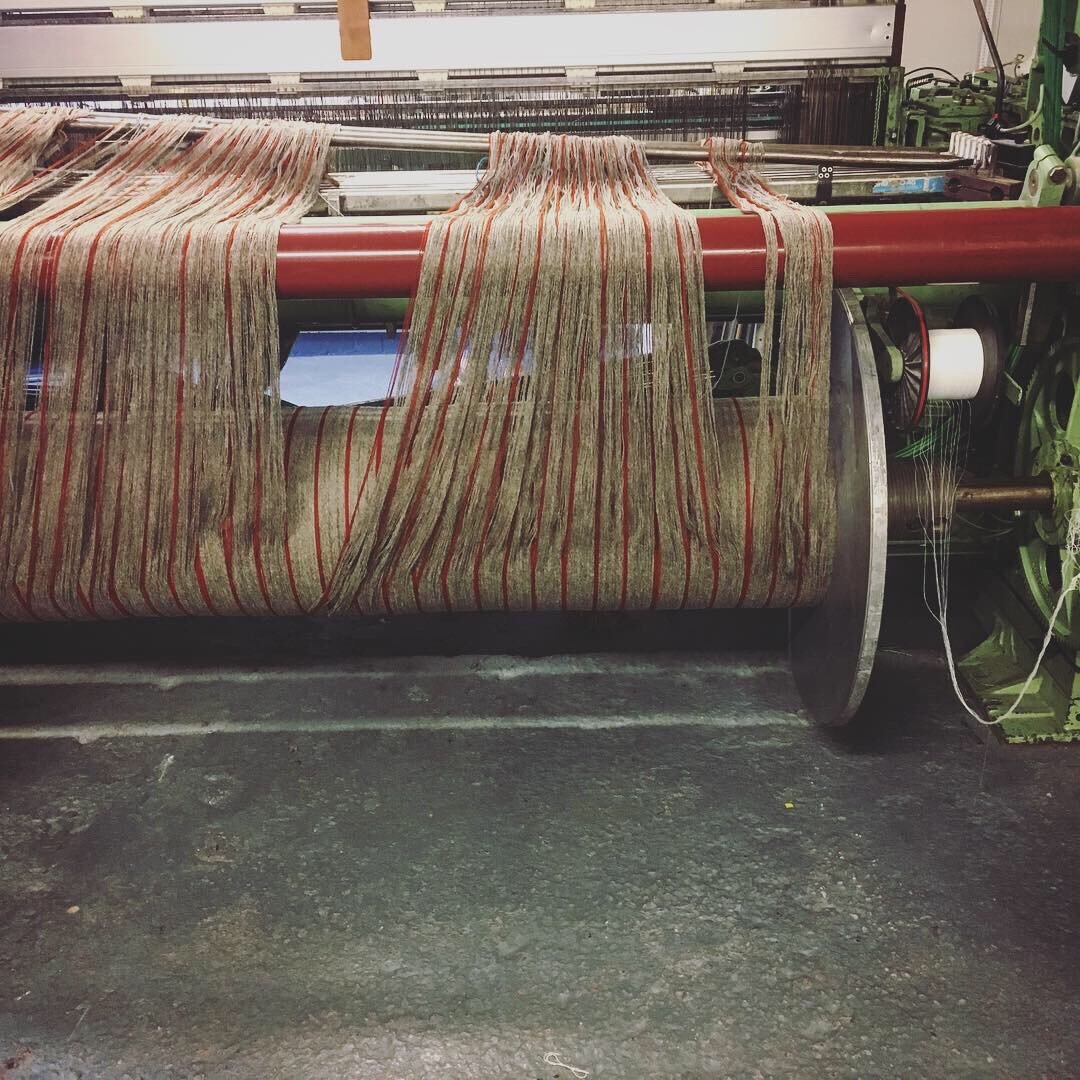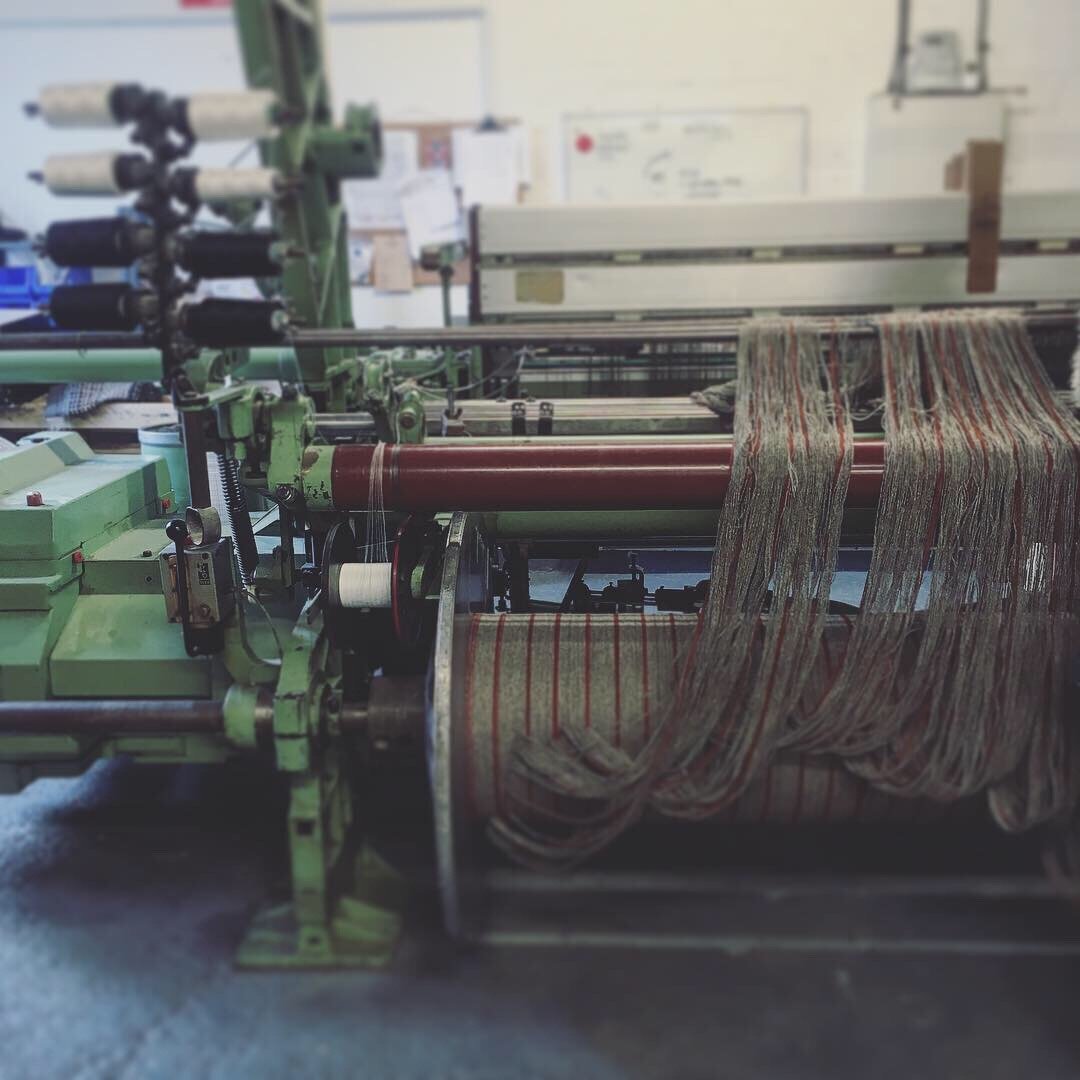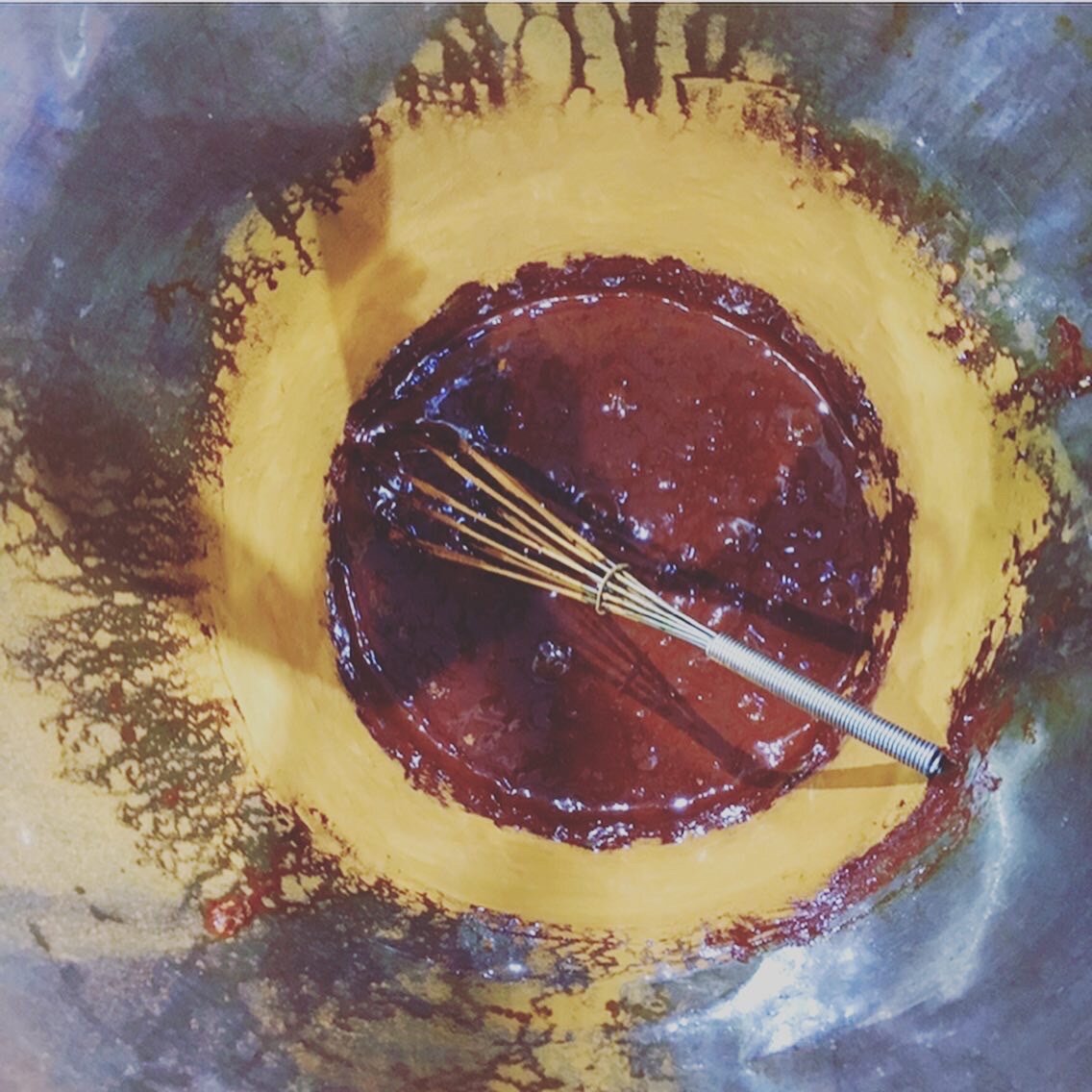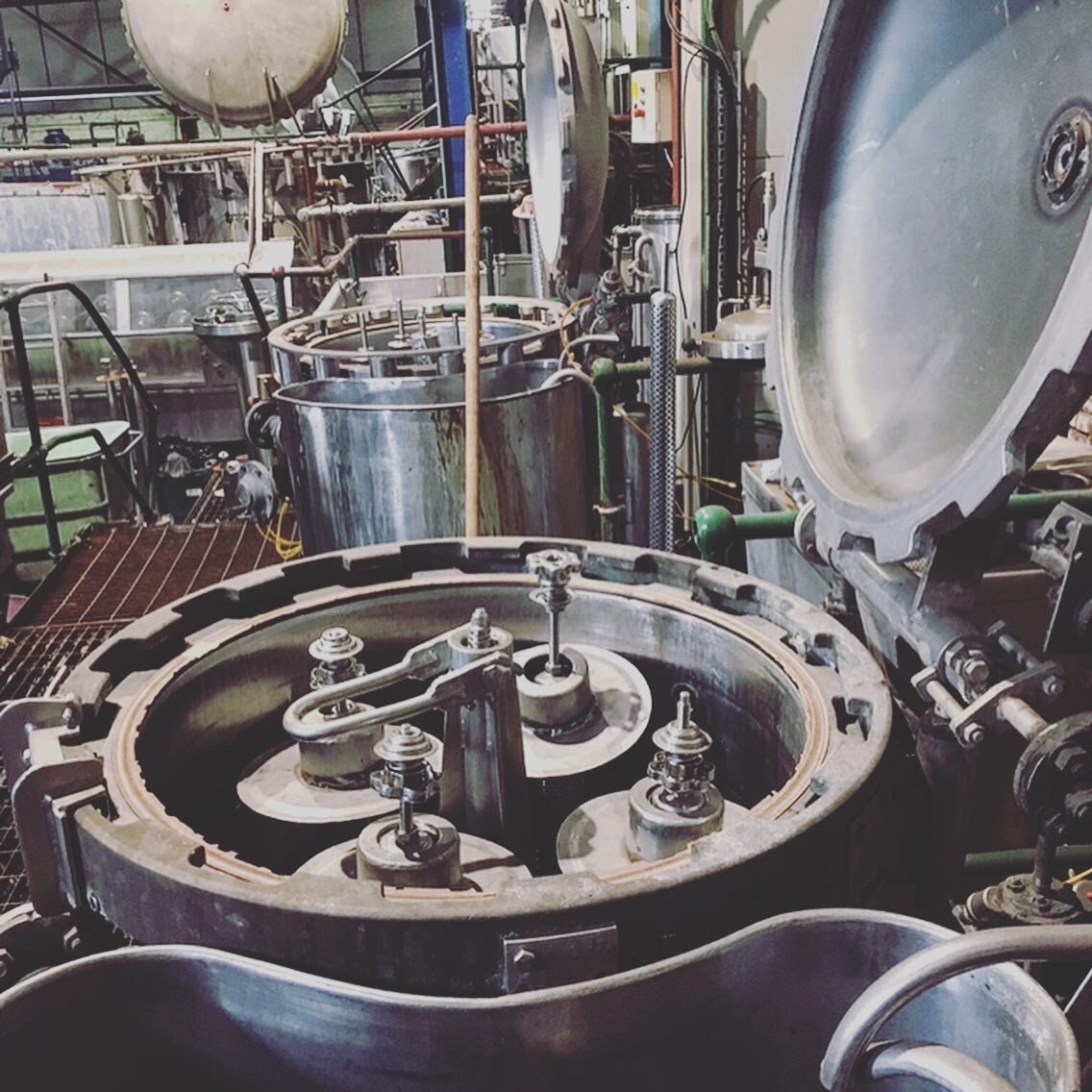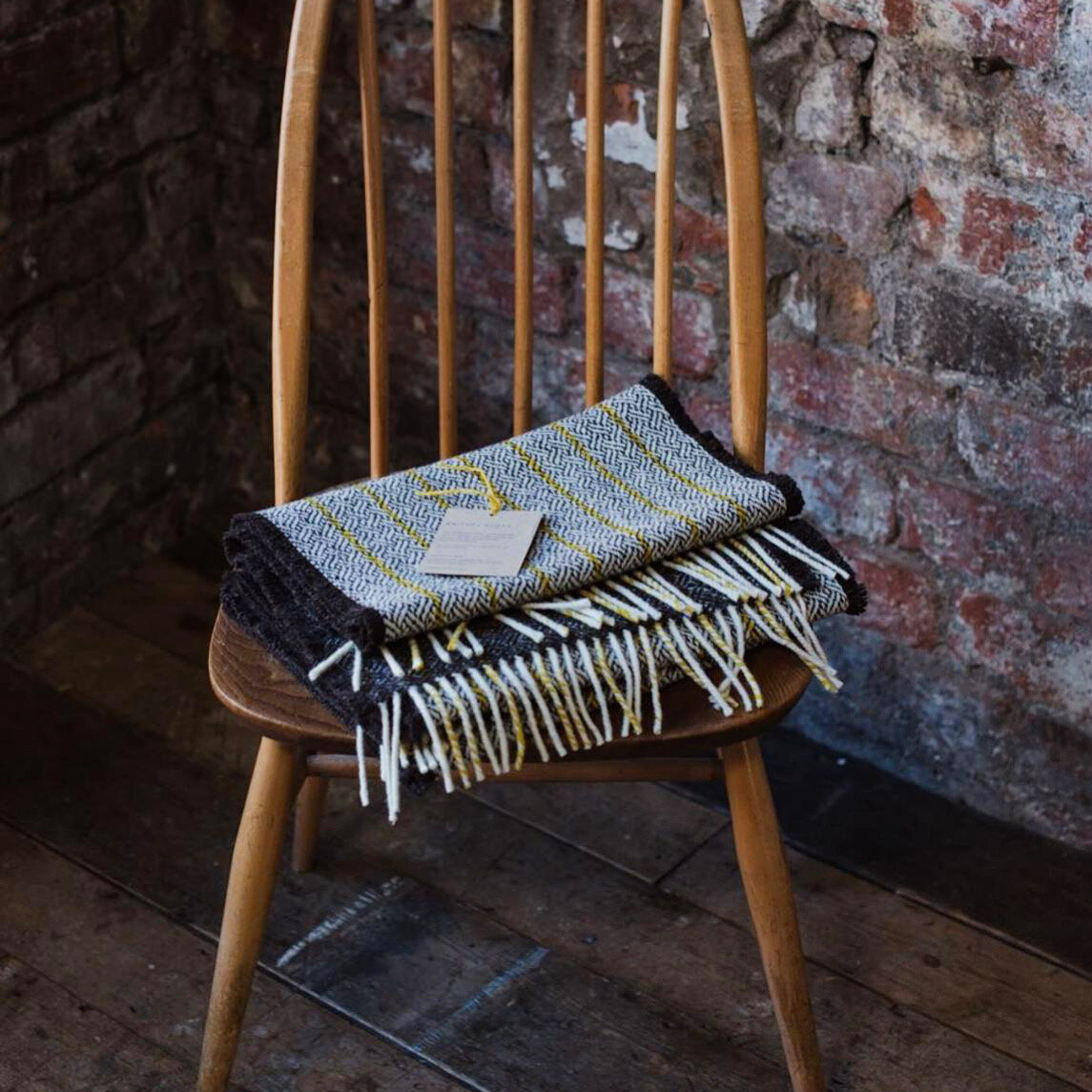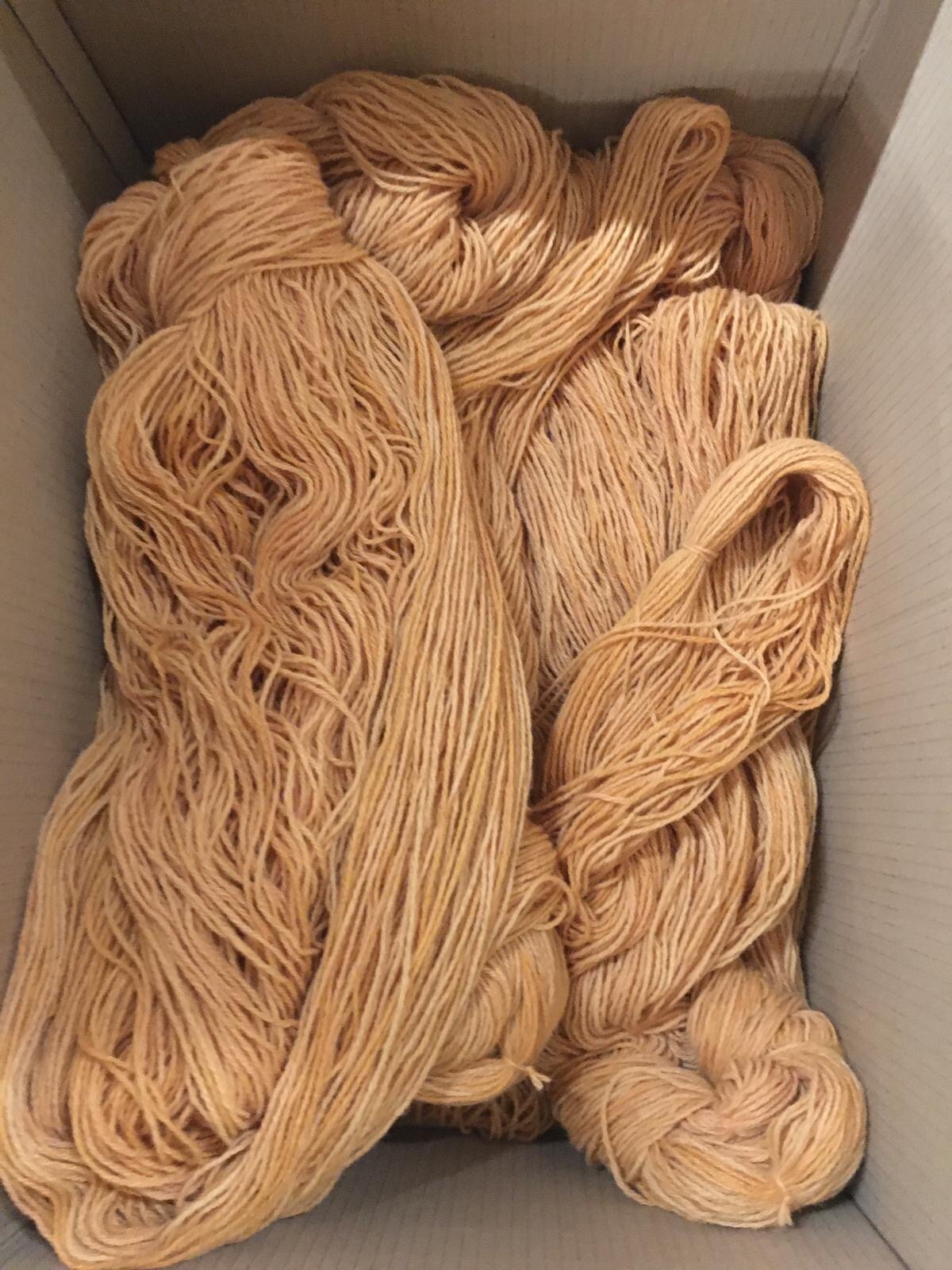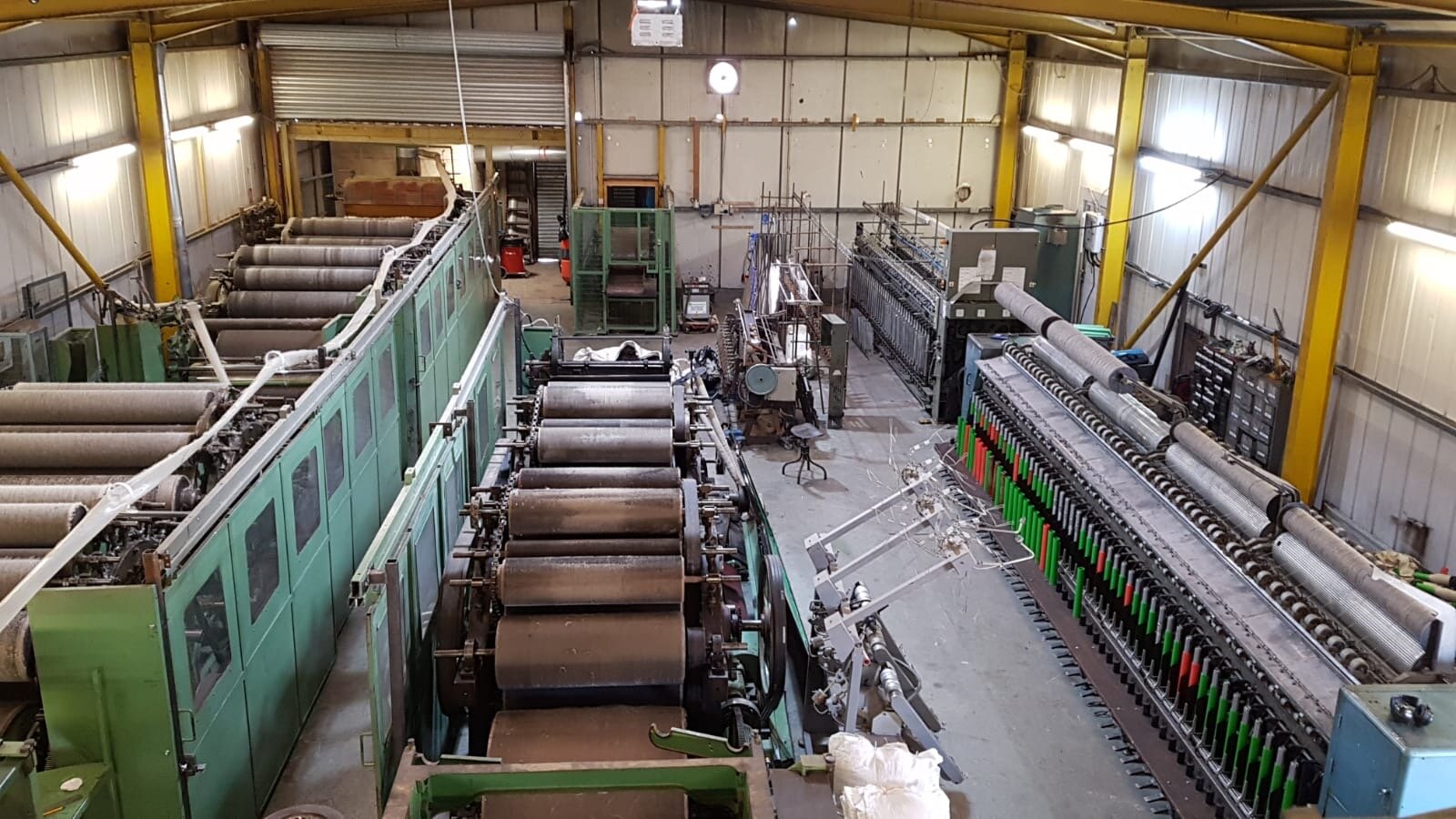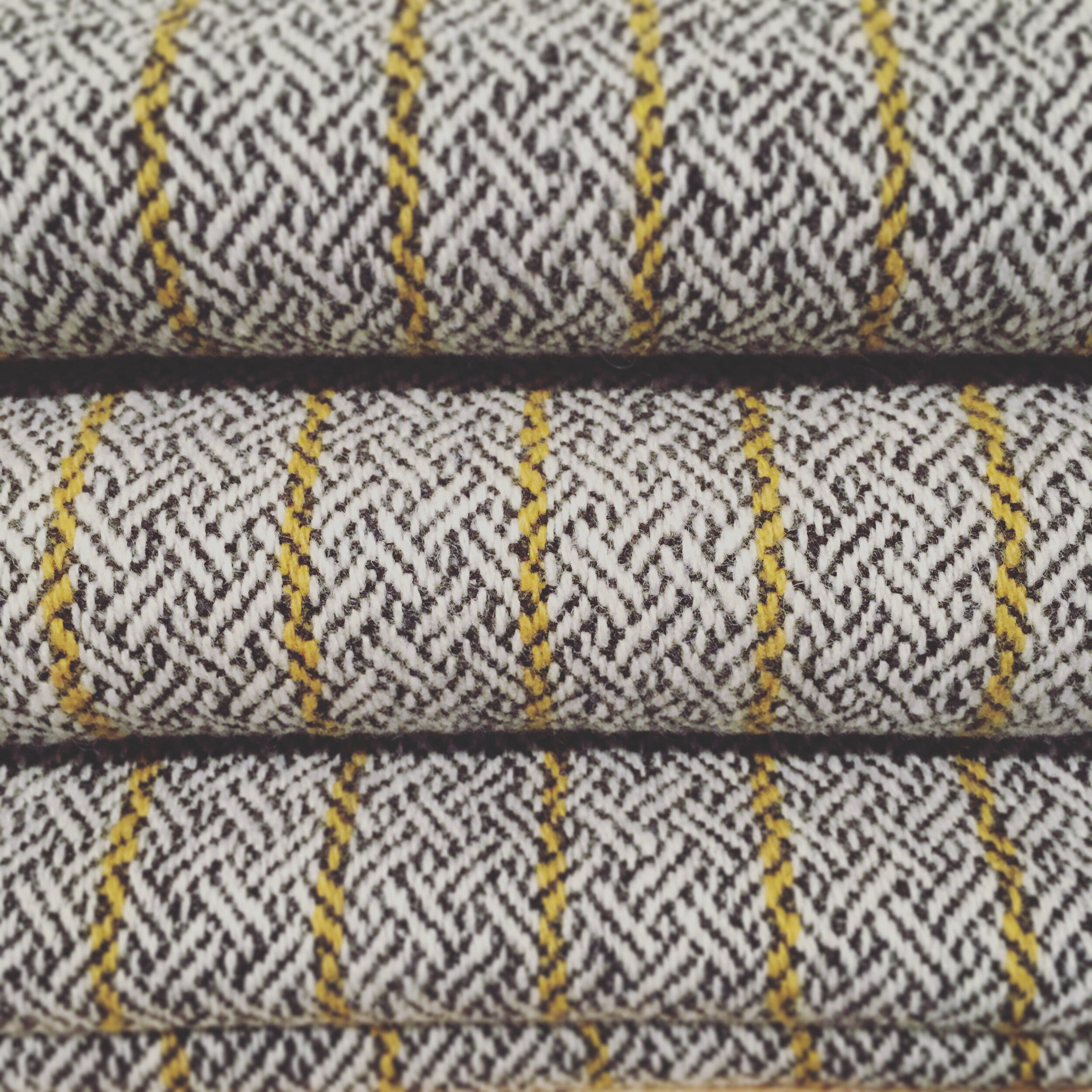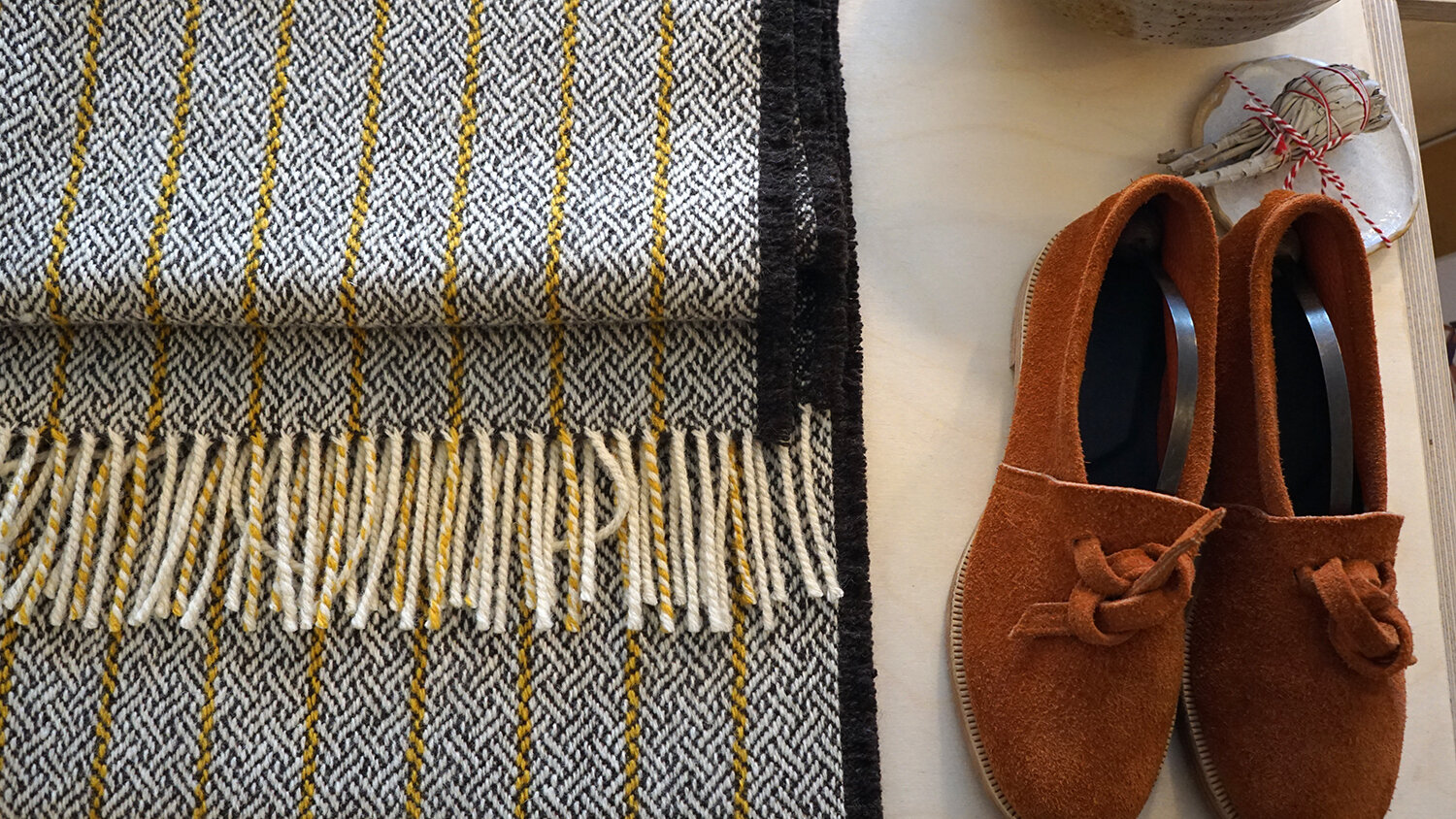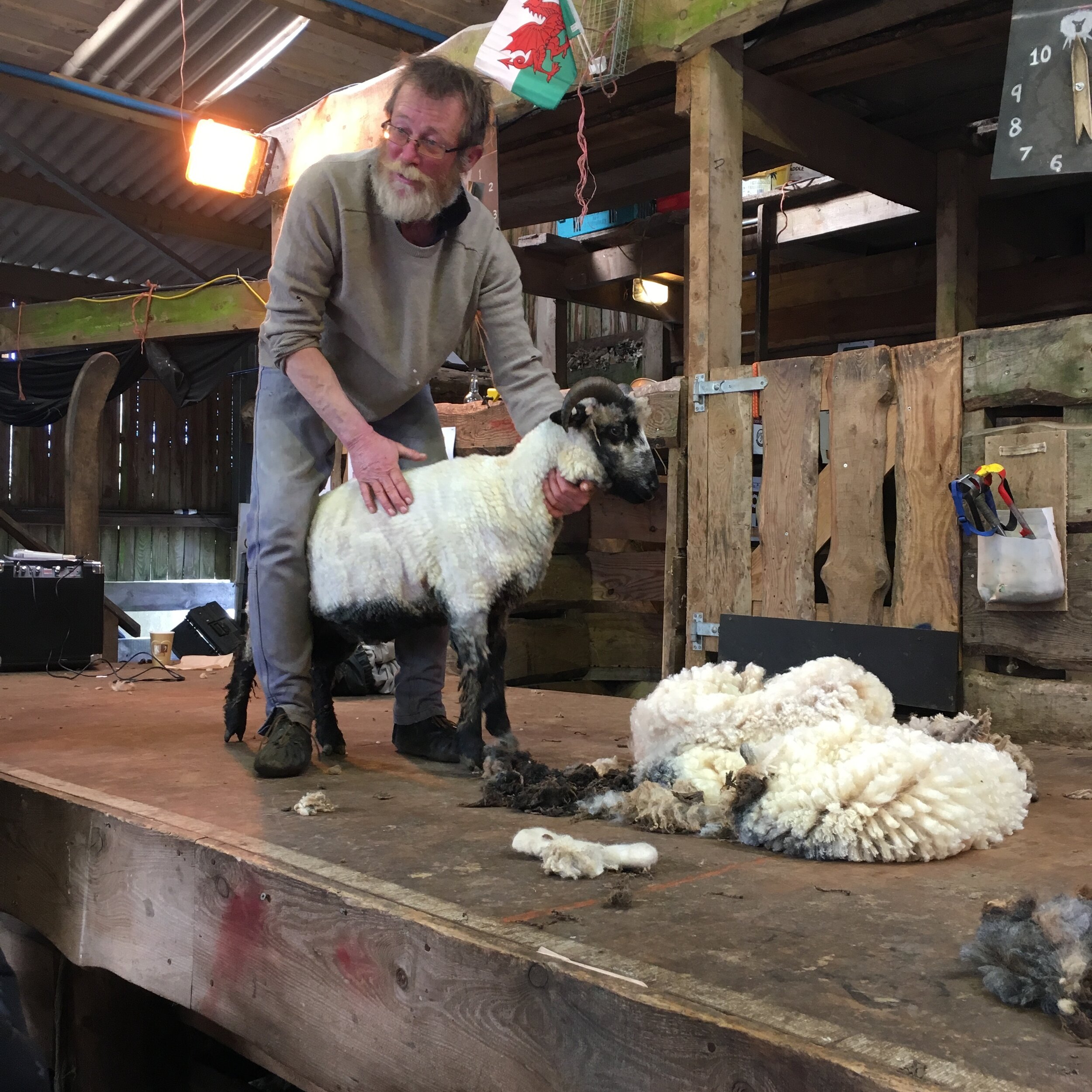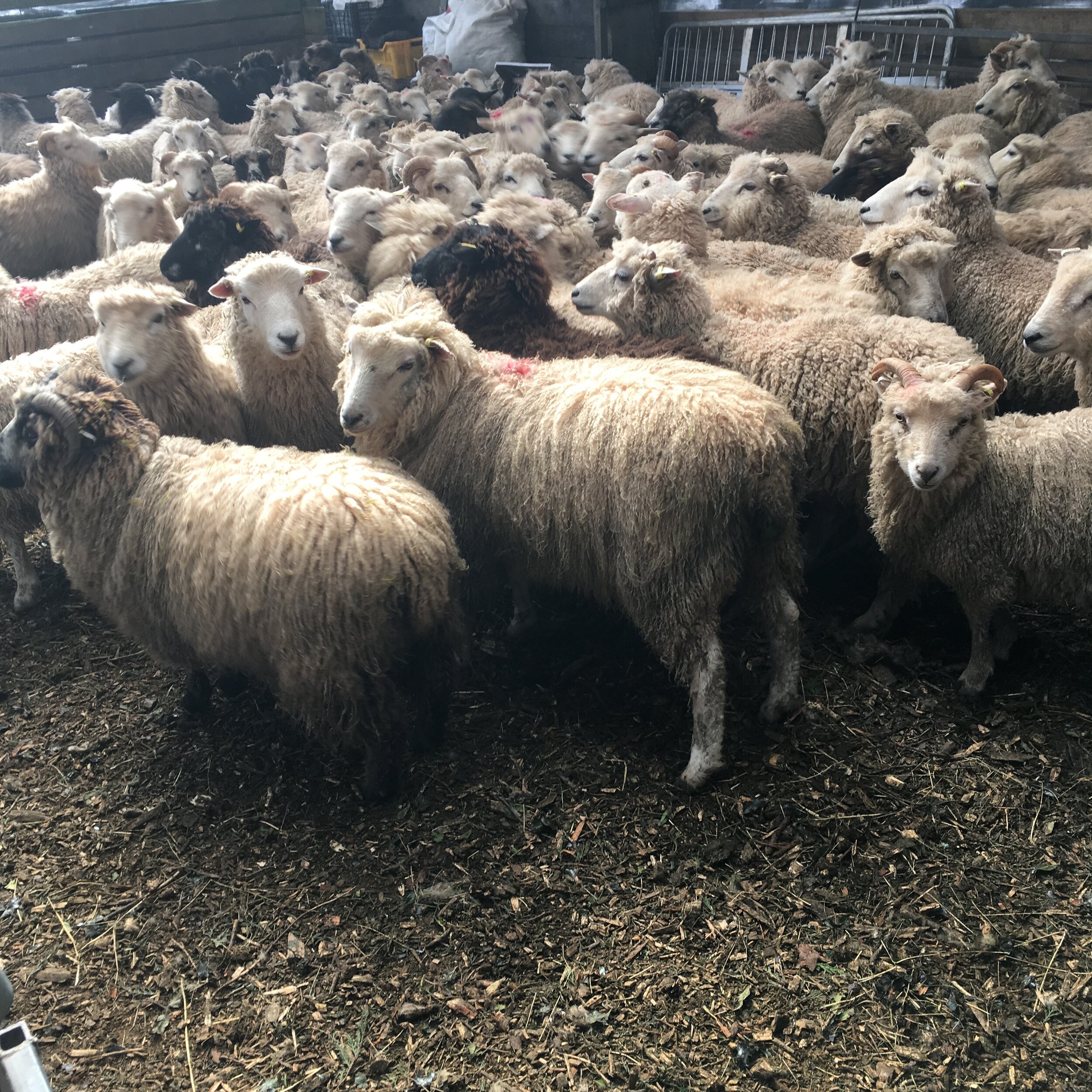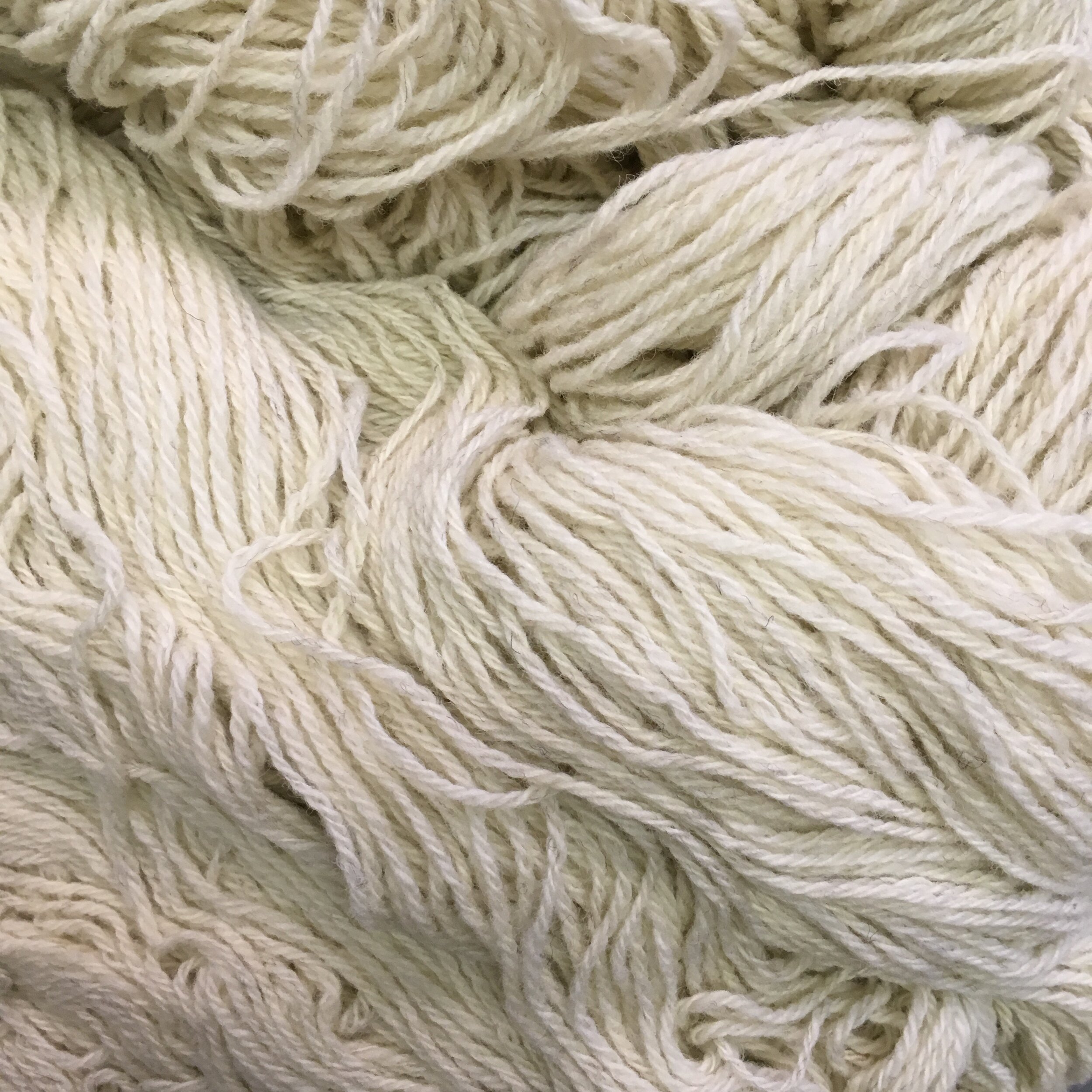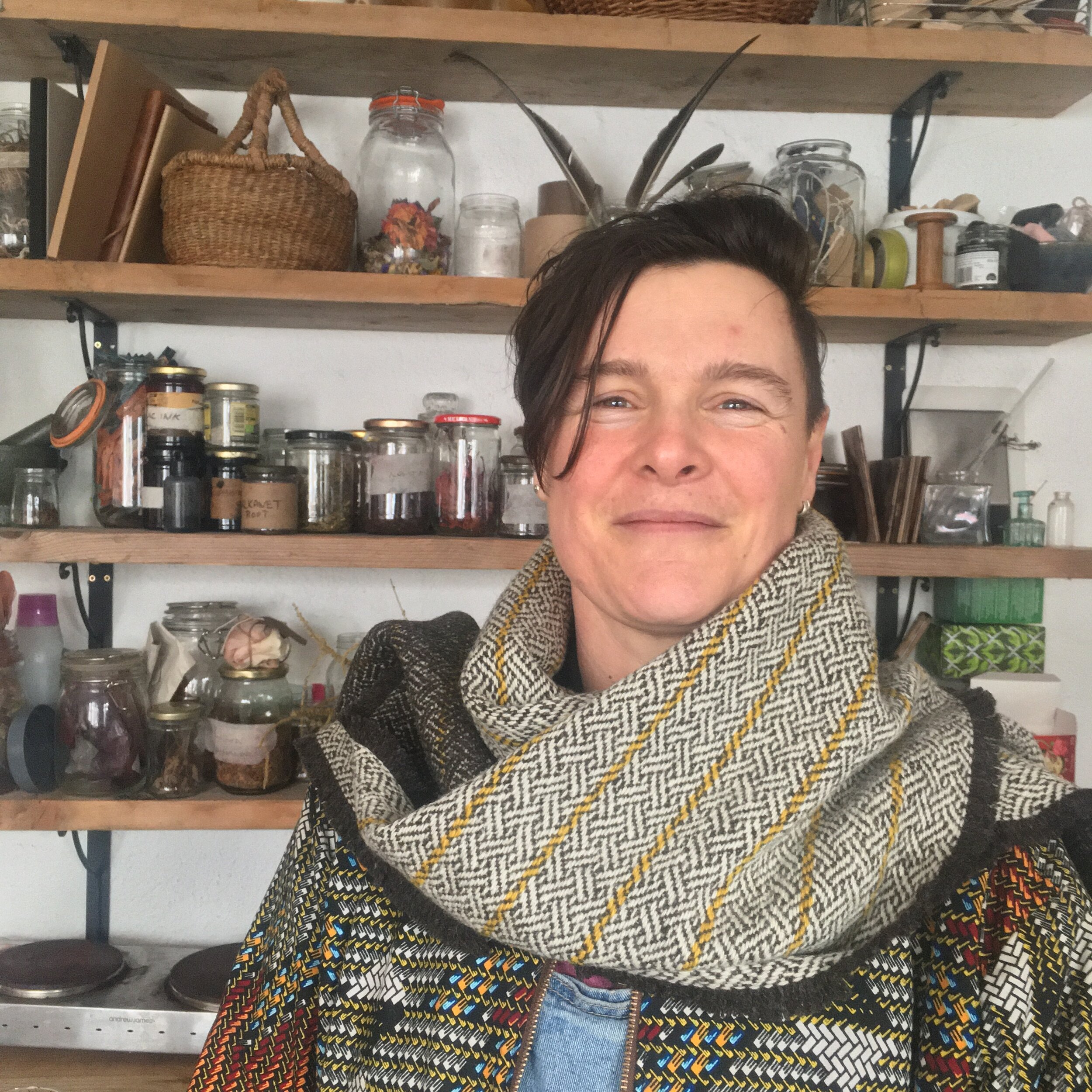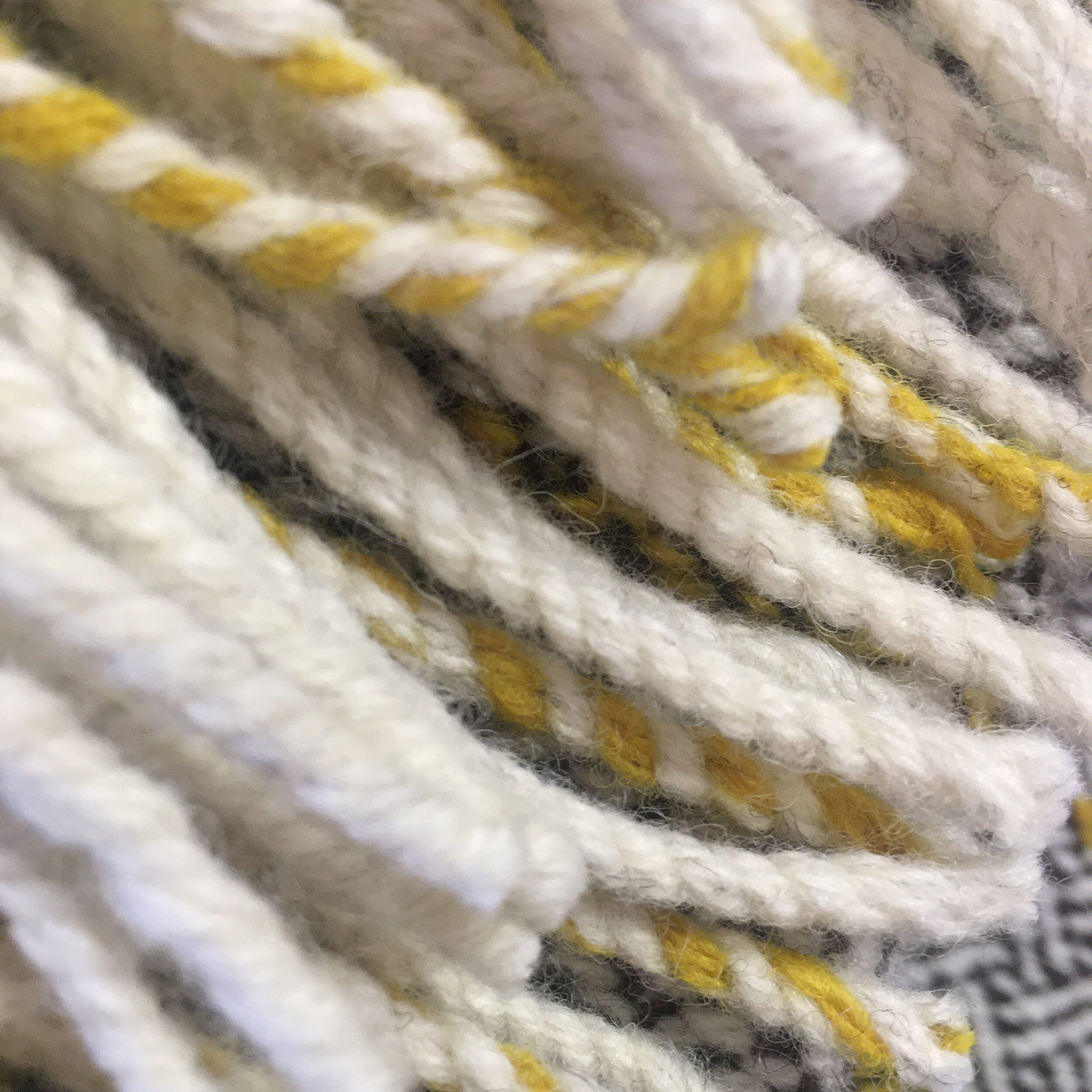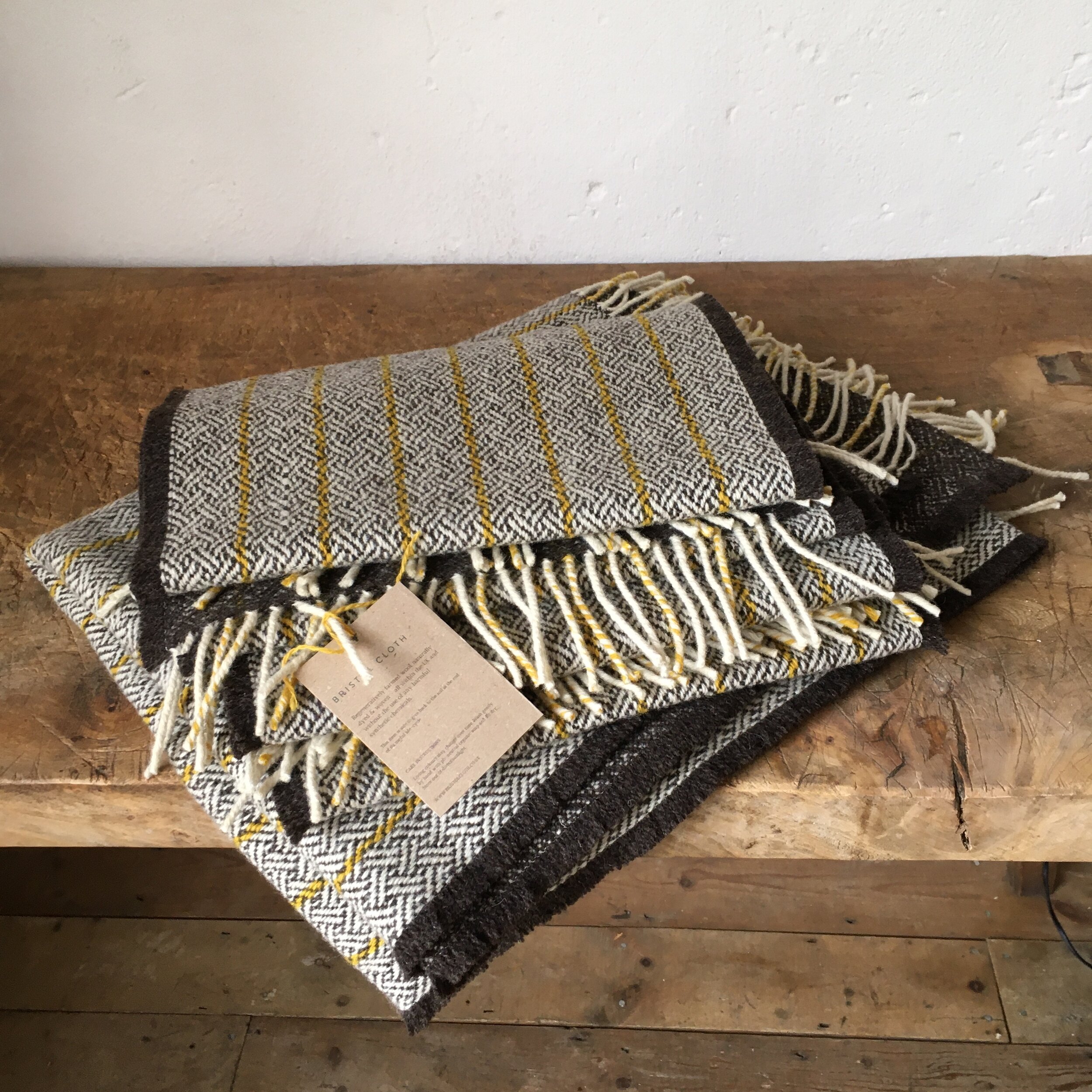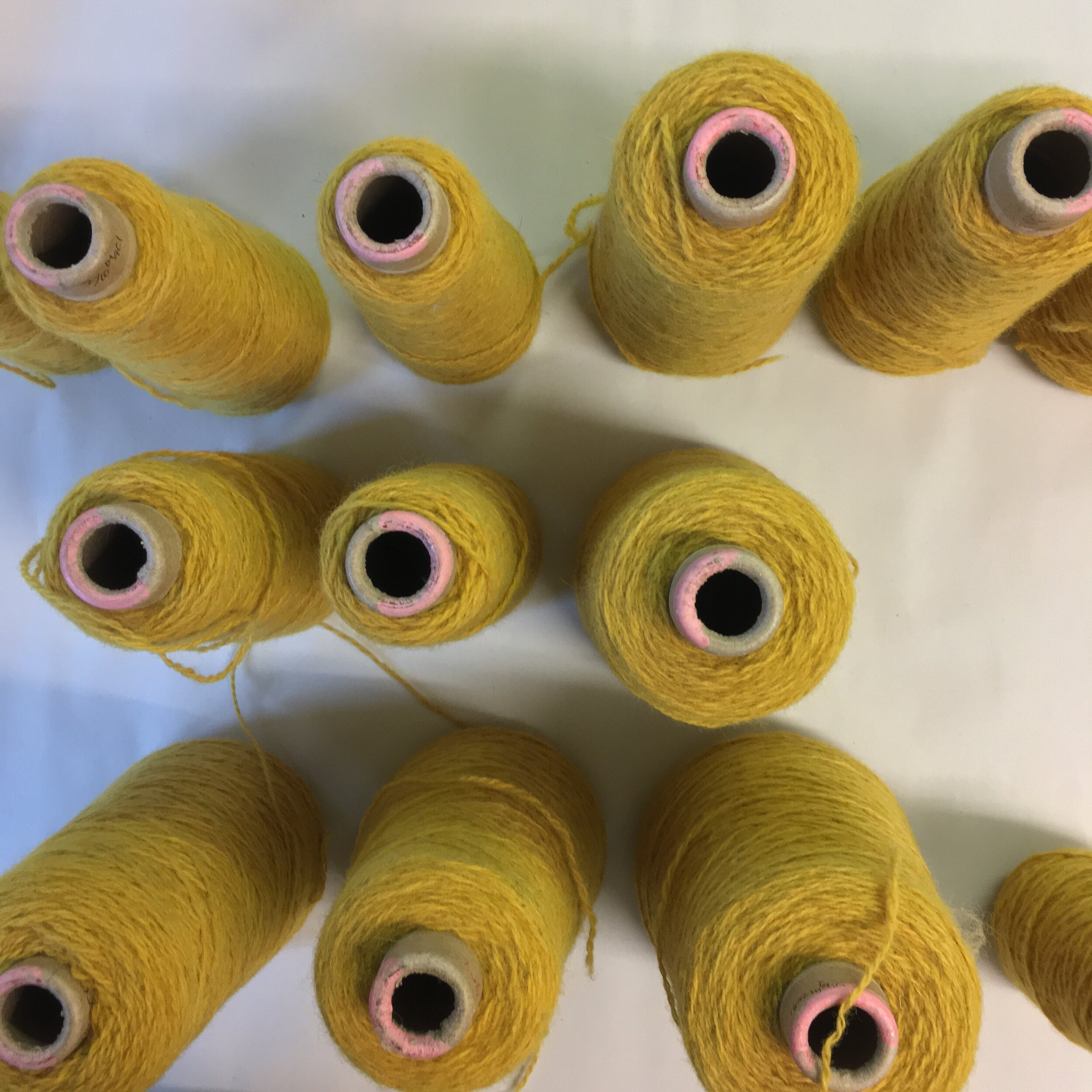BRISTOL CLOTH 2ND EDITION
Regeneratively farmed lambswool, from Fernhill Farm, 15 miles from Bristol. Dyed with organic Dyer’s Mulberry natural dye, once the most important natural yellow dye used in historical English textiles. Woven into the traditional basket weave design, with a pinstripe, set against natural white and black fleece colours.
Woven at the Bristol Weaving Mill, based in Bristol’s Old Market Quarter, by skilled artisans.
We offer scarves and blanket scarves as heirloom pieces which are healthy for the soil, animals, humans and landscape and safe to give back to the earth after many useful lives.
A limited amount of woven cloth is available by the metre for tailors and makers to craft with.
Regeneratively farmed lambswool from Fernhill Farm, only 15 miles from Bristol, offers the highest standards of animal welfare, maximised carbon sequestration and soil rebuilding techniques.
Sheep are conservation grazed across the Mendip Hills AONB with fresh pasture every day, working the soil to add fertiltiy and plant diversity which enables tall and deep rooted grasses to grow and draw down more carbon, locking it back into the soil where it belongs.
Allowing diverse plant species to flourish by cutting out the use of chemical sprays and glysophates which otherwise damage the microbiology health of the soil. Diverse plants also means diverse nutrients and given to the grazing animals as well as the soil. Continueing further loops of environmental regeneration and animal welfare.
Healthy animals grow heathy fleece which can be seen and felt in the lustre, strength and smoothness of the fibre.
Jen and Andy, the shepherds, use traditional hand blade shearing, unlike most others farms, because it offers a more humane and peaceful approach to shearing. The animals can remain relaxed. Unlike electric shearing which can be stressful for the animals and often carried out by unskilled hands, which commonly leave nicks and cuts which lead to infection and death.
Sheep that have endured stress can be known from the quality of their fleece, as hair growth becomes stunted or slowed when animals experiece stress. The staple of the lambswool from Fernhill demonstrates a beautifully long and smooth staple which reflects the wellbeing of their sheep.
The Bristol Cloth is farmed, processed and manufactured without the use of any harmful synthetic chemicals, on the land or fibre. We have done away with the standardised use of synthetic spinning oil at our spinning mill and only use natural organic ph neutral castille soap for gently washing and finishing our yarns and cloth.
Organic “Dyers’ Mulberry”, also known as “Old Fustic”, is the natural dye plant extract used by Botanical Inks natural dye house, to give a strong and colourfast mustard yellow colour to this edition.
Once the most valued yellow dye in England’s history due to its vibrant colour and reliable lifespan. A dye which was brought to these shores on wind-powered sail ships from the Americas, when the sea routes opened and new plant dyes became du jour.
This production was dyed in a commercial dye house facility, allowing for consistent colour thanks to the larger capacity of the dye equipment, and lower usage of water.
Streamlining our dye processes and standing for the possibility of non toxic natural dye use within the British textile and fashion industry at large. For use, this was a radical breakthrough moment!
The Bristol Weaving Mill have partnered with us again for this production to provide the artisan weaving of 200 metres of cloth and scarves. Skillfully producing the same basket weave design as our 1st Edition, with the new fleece colours and yellow pinstripe.
This production has been produced on their refurbished Dormier loom, using the punch card system.
After weaving, the scarves and cloth were hand-finished, gently washed and trimmed to size. These scarves were finished on a special machine to create tassled ends.






